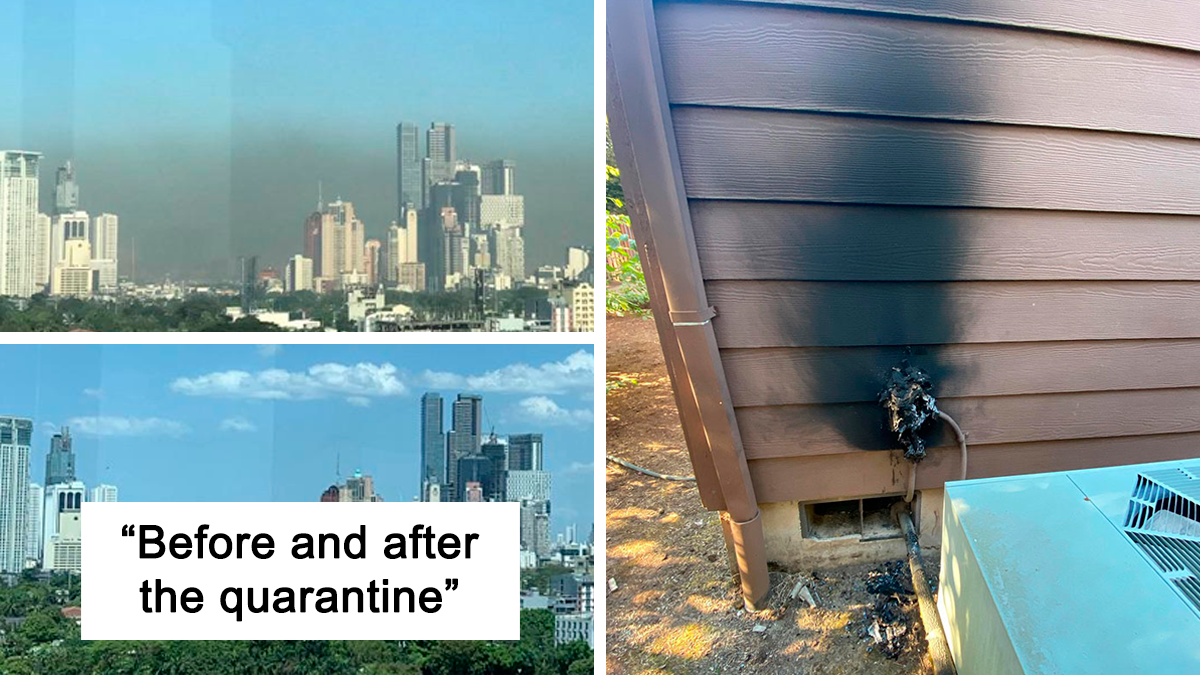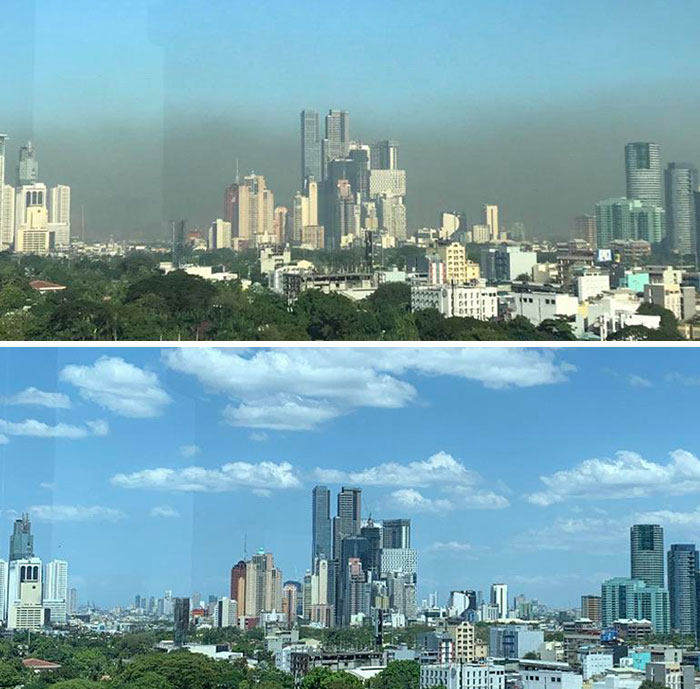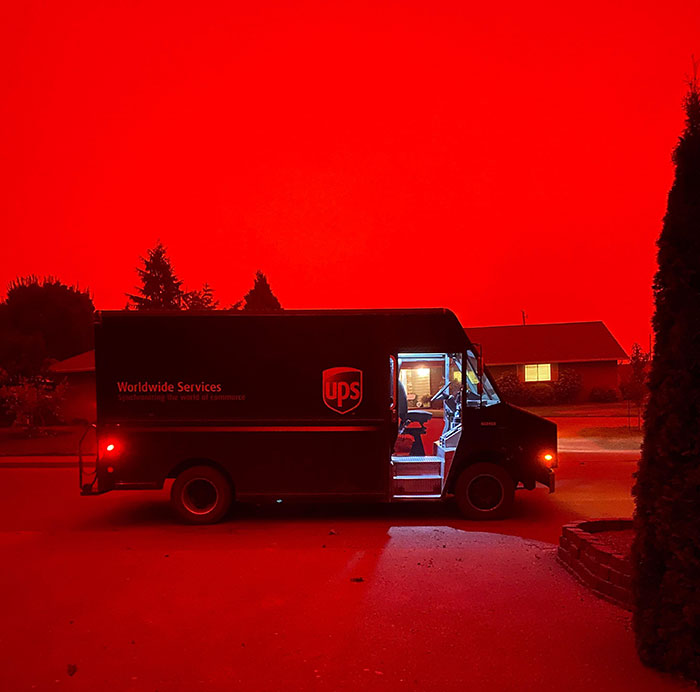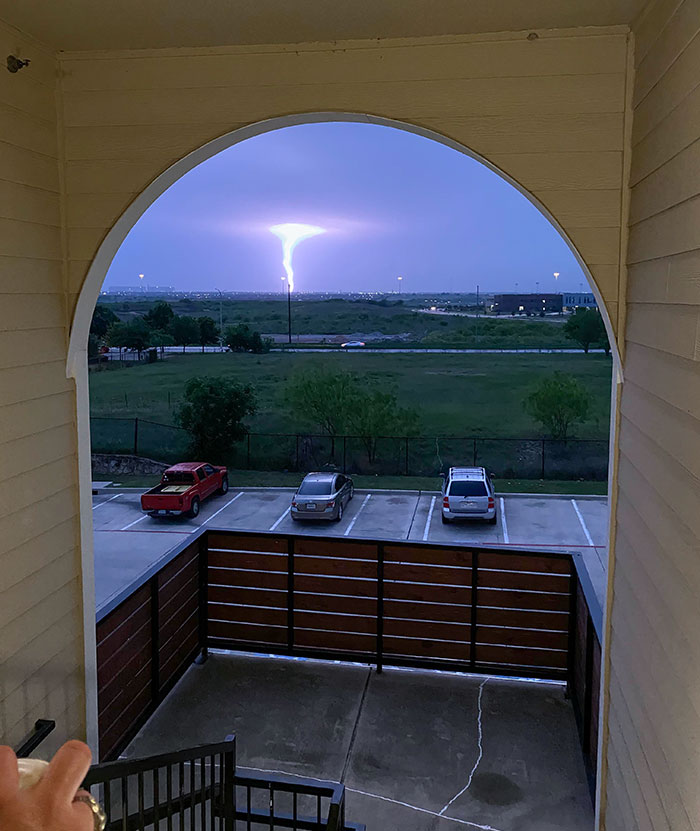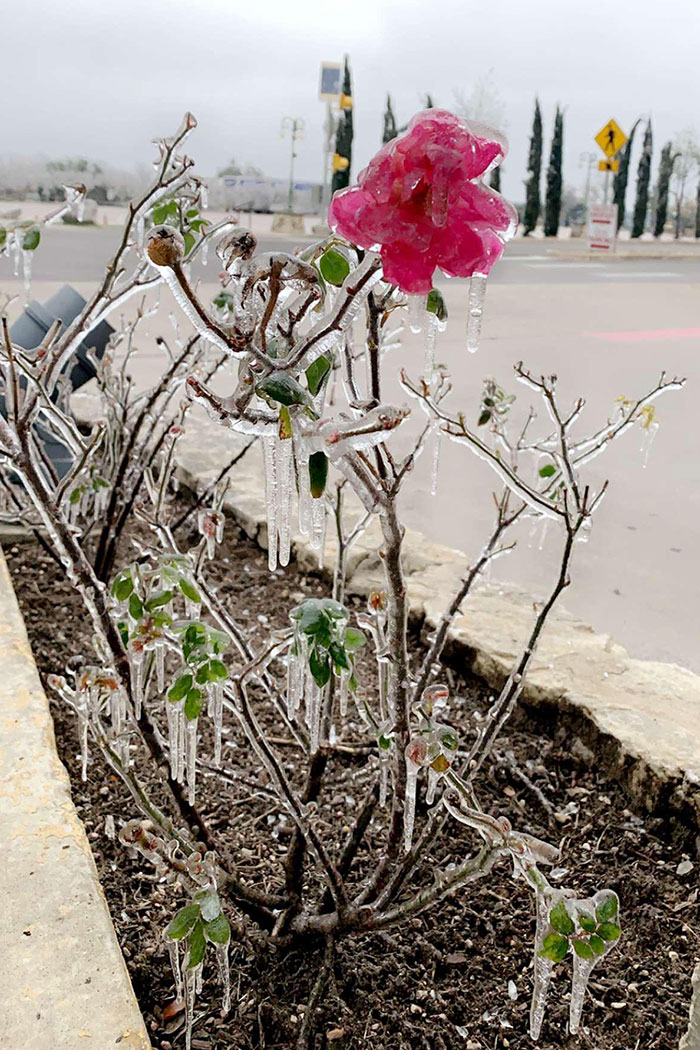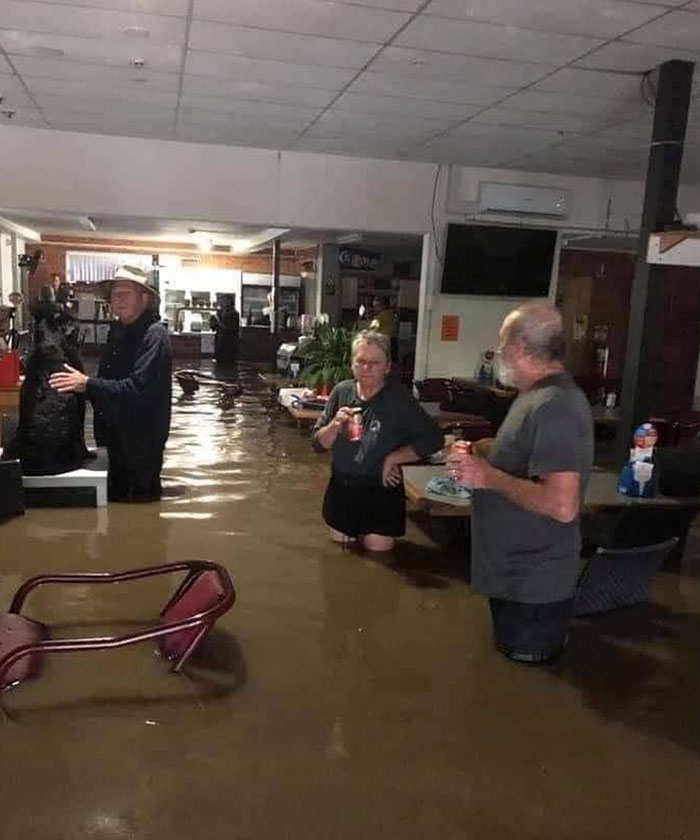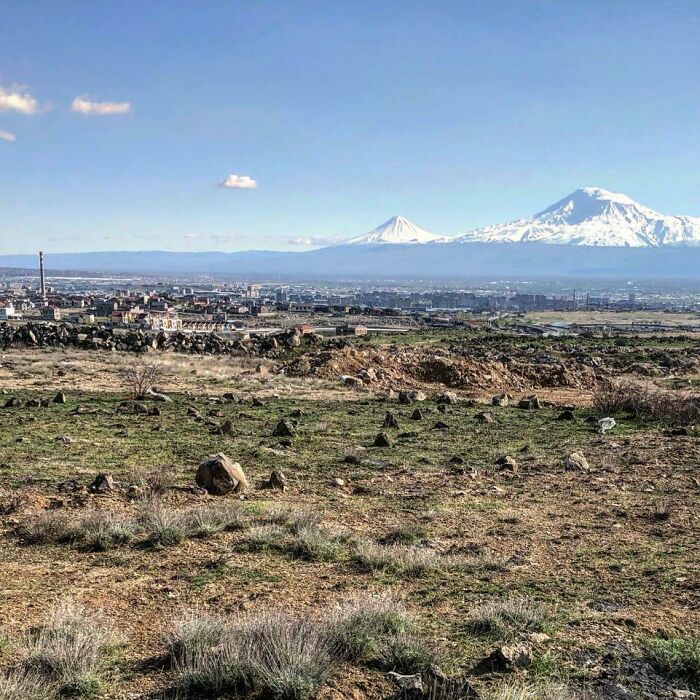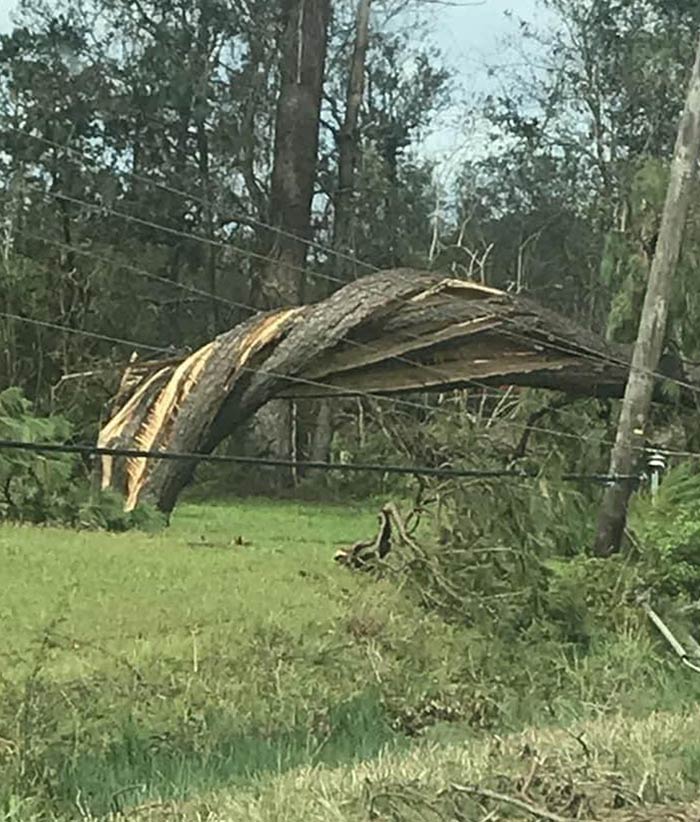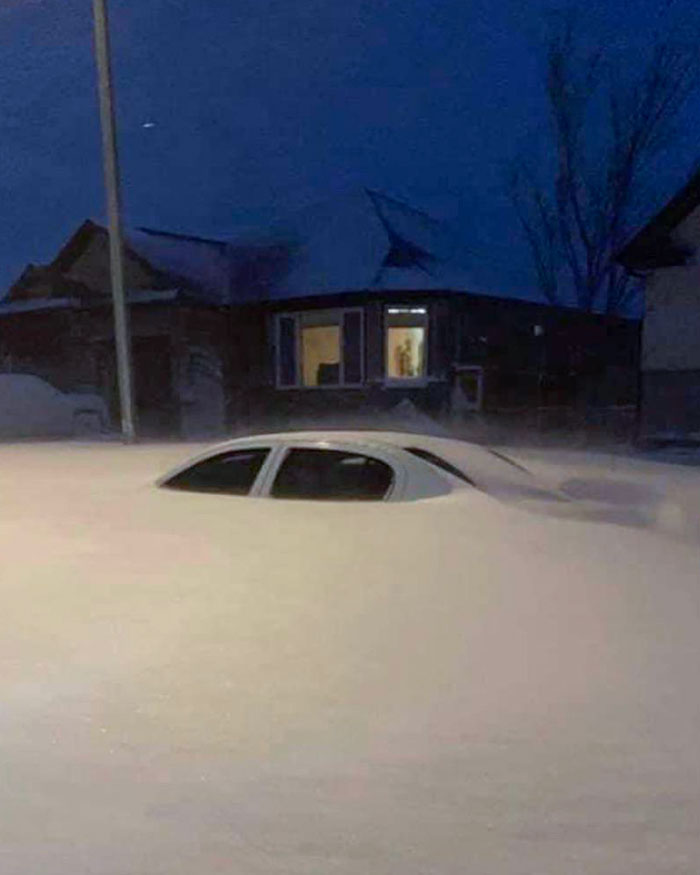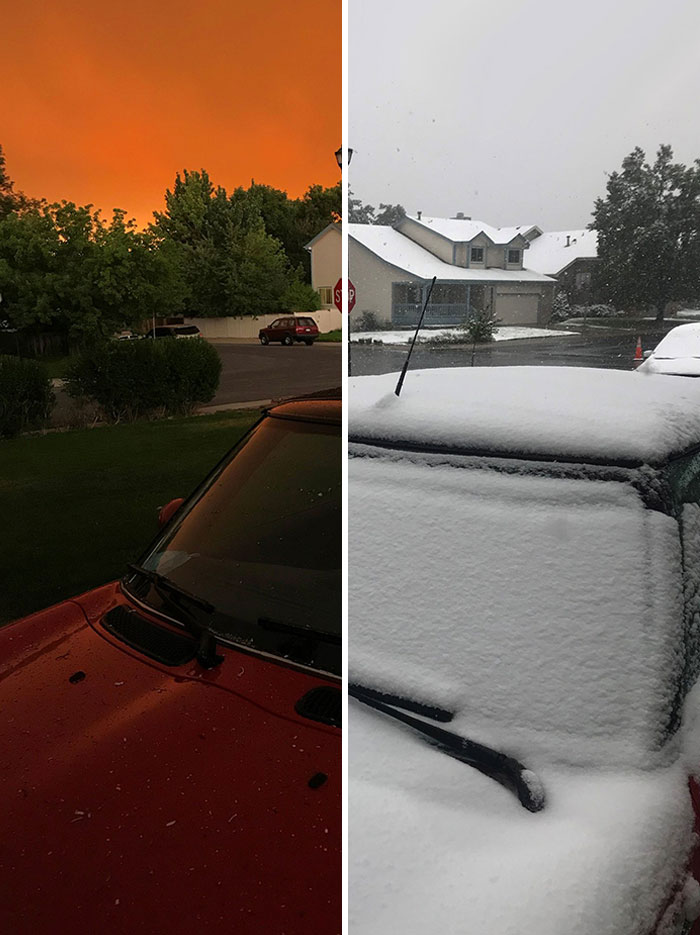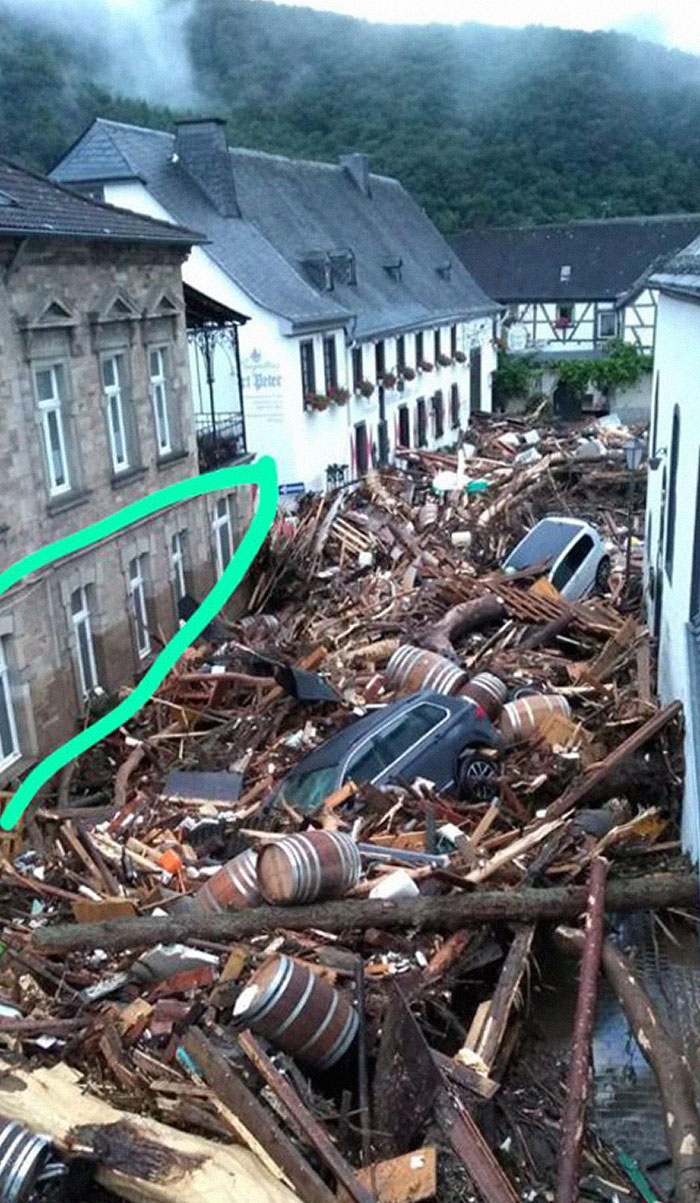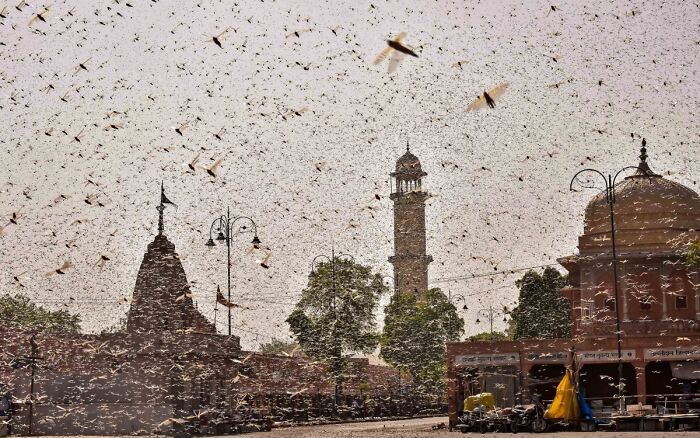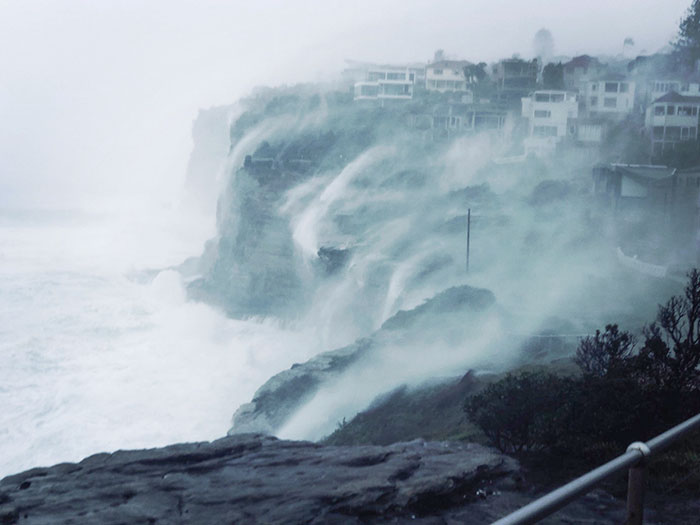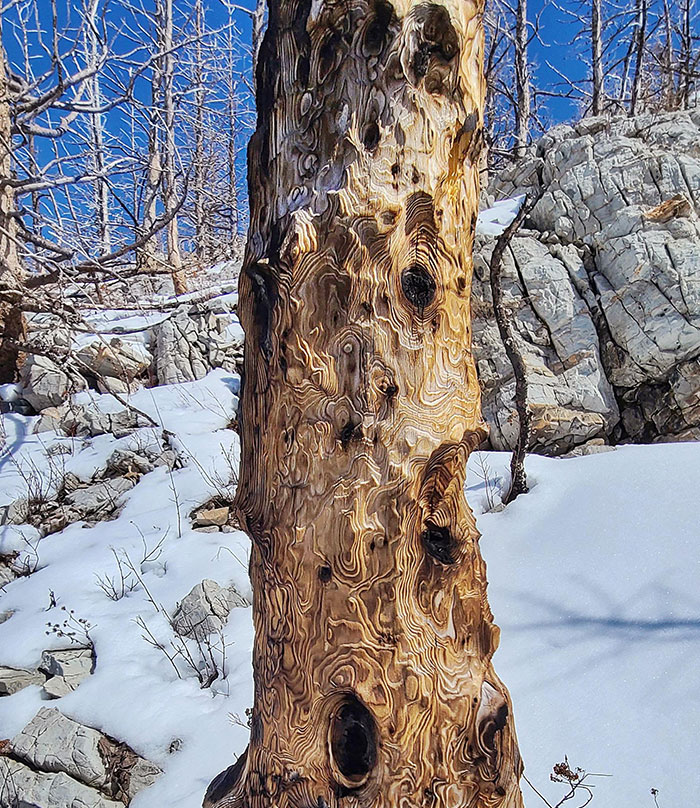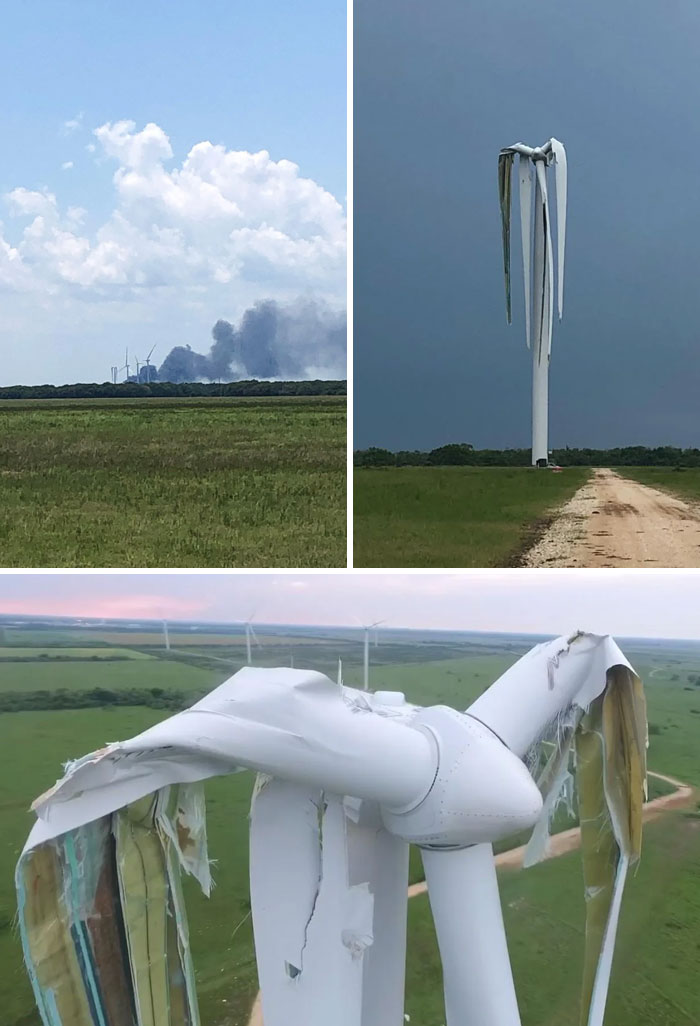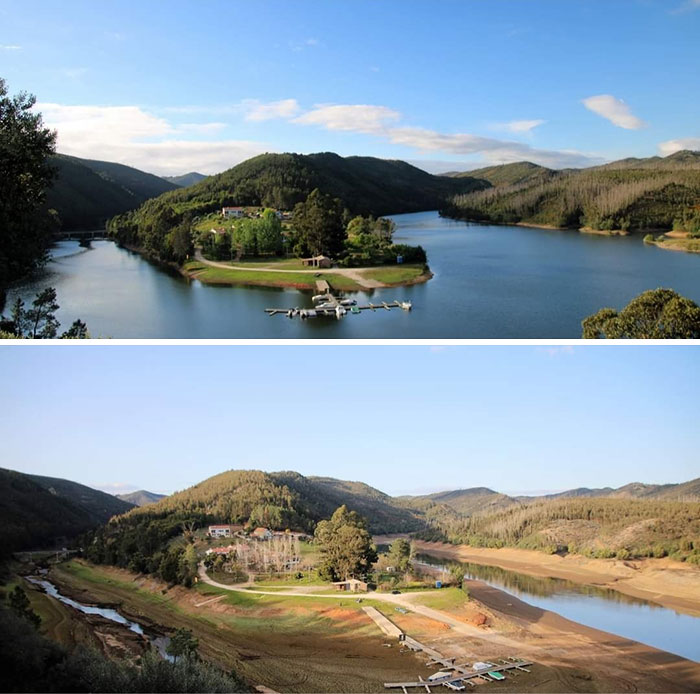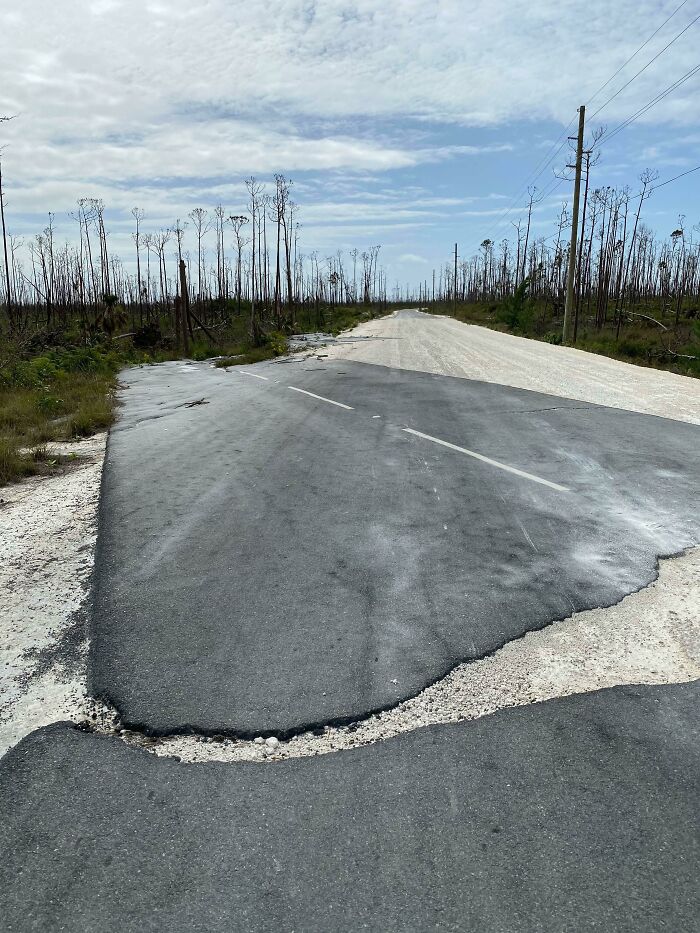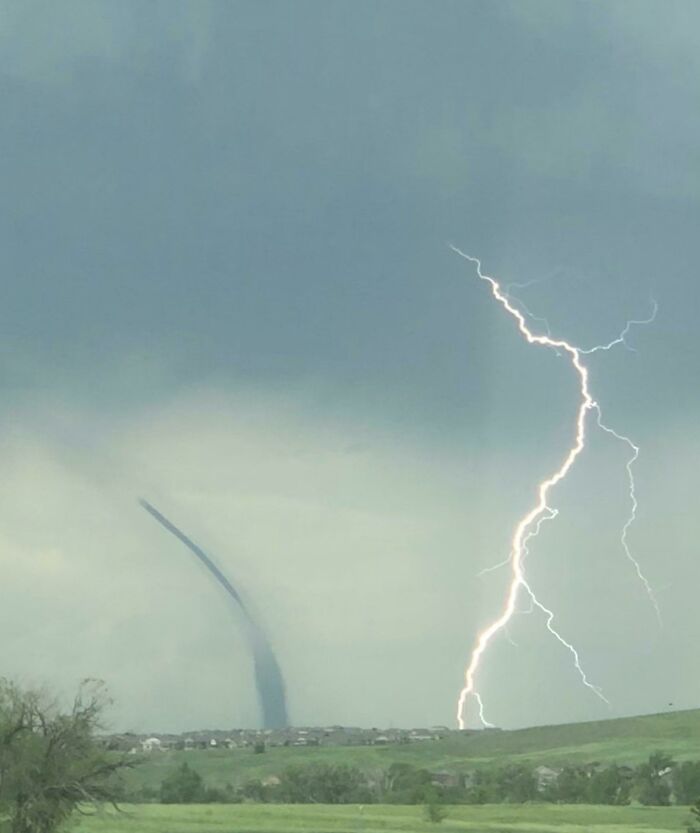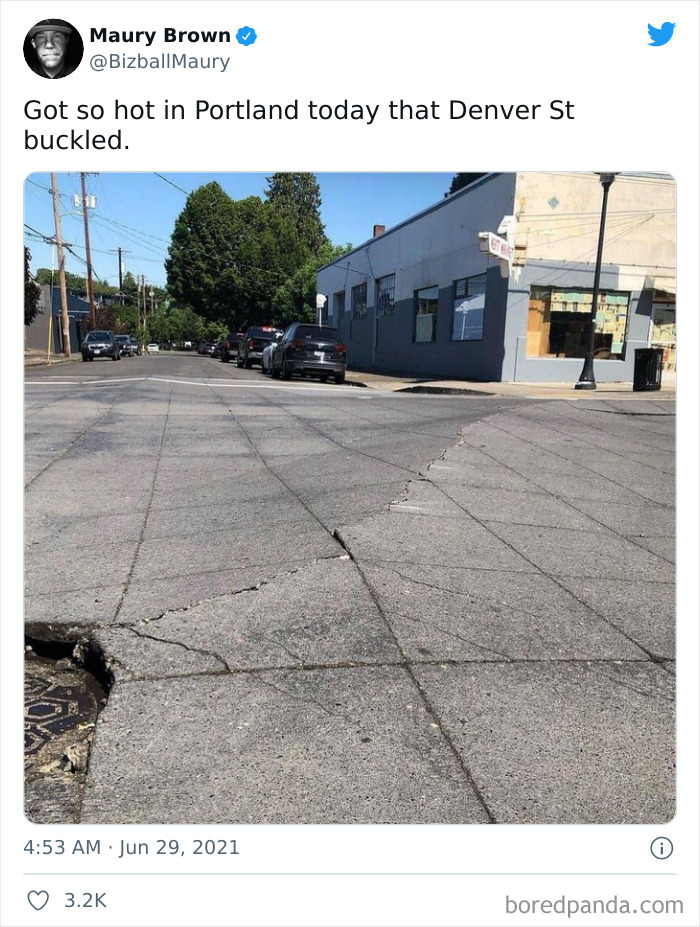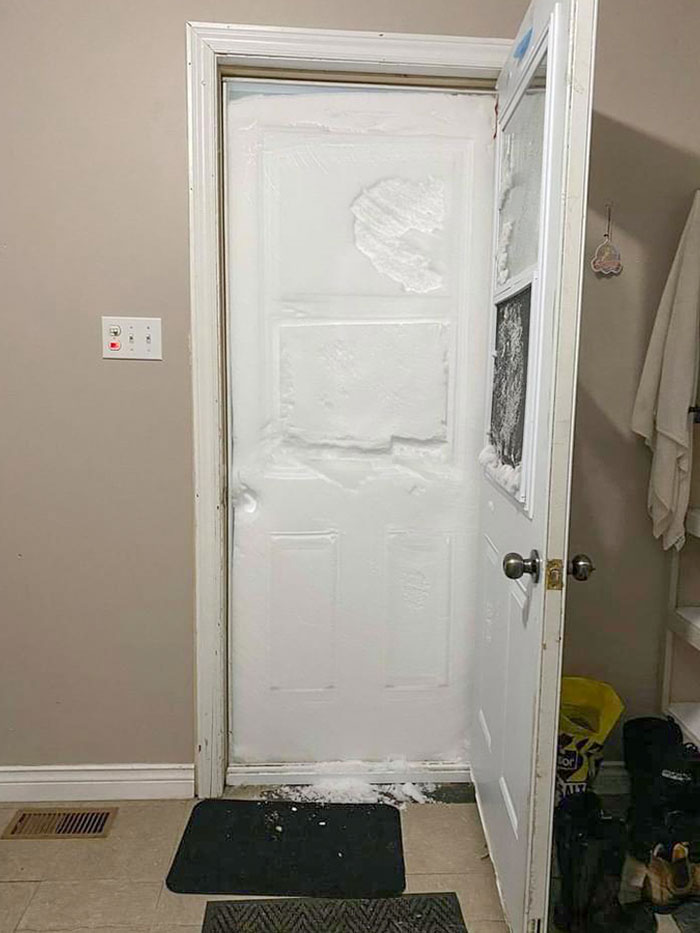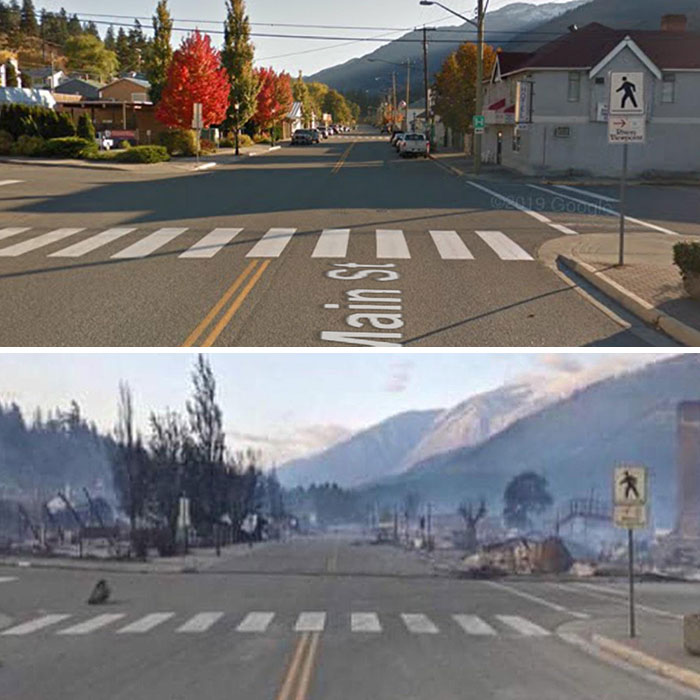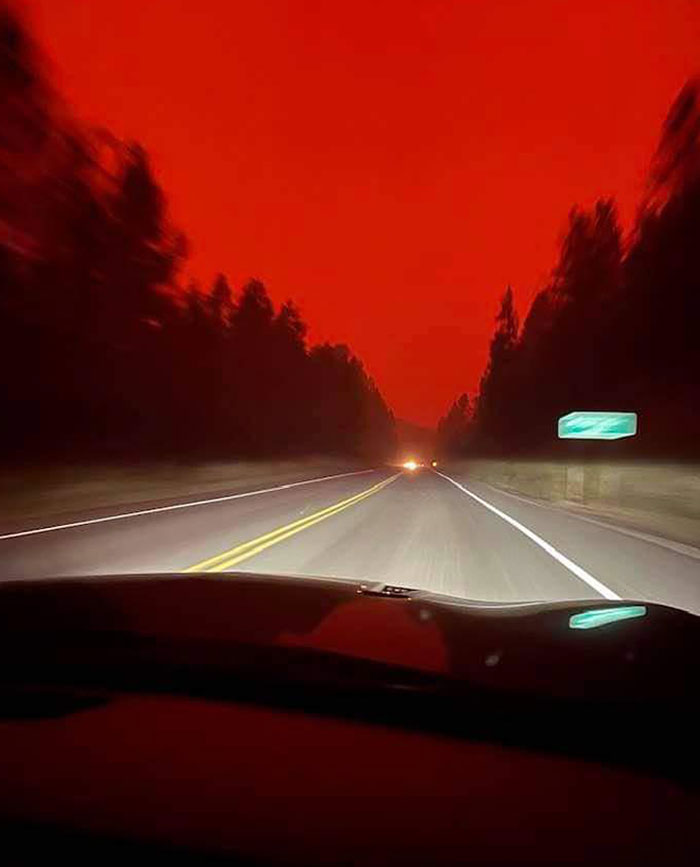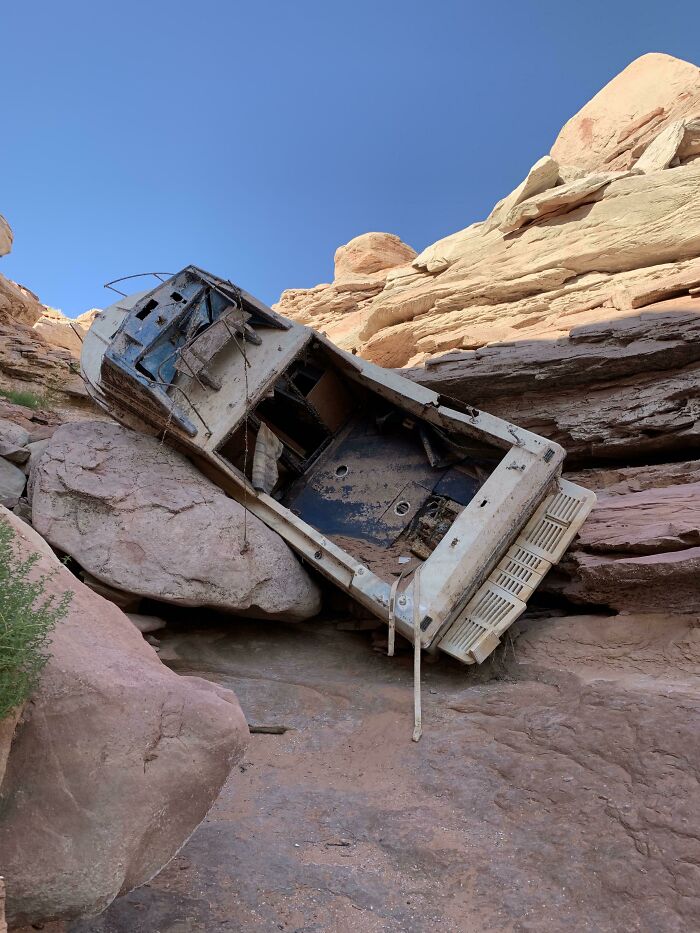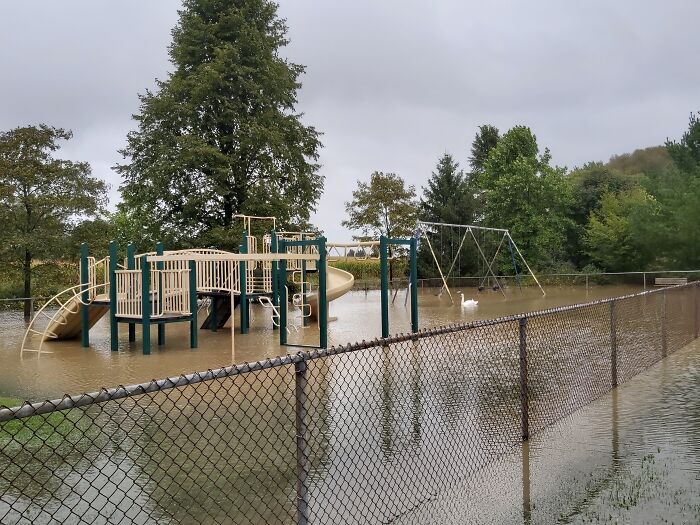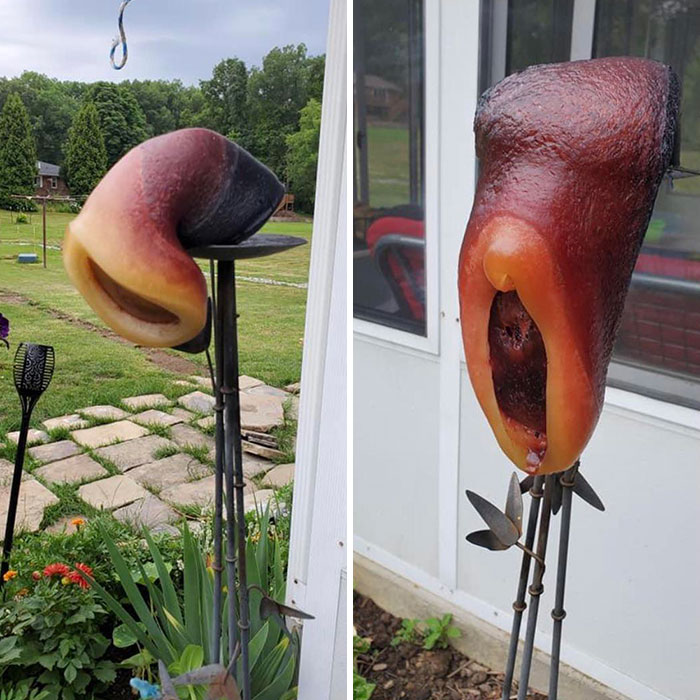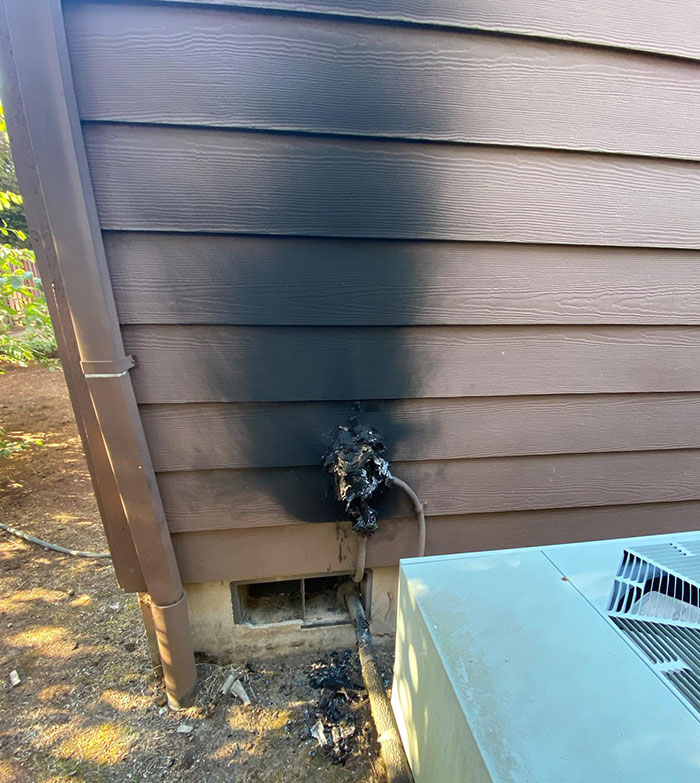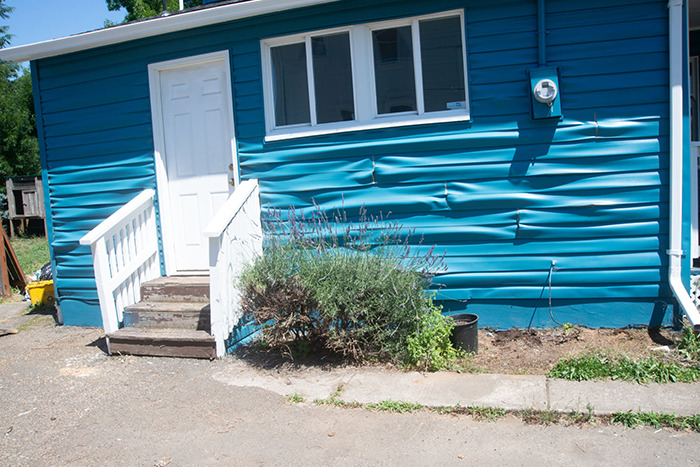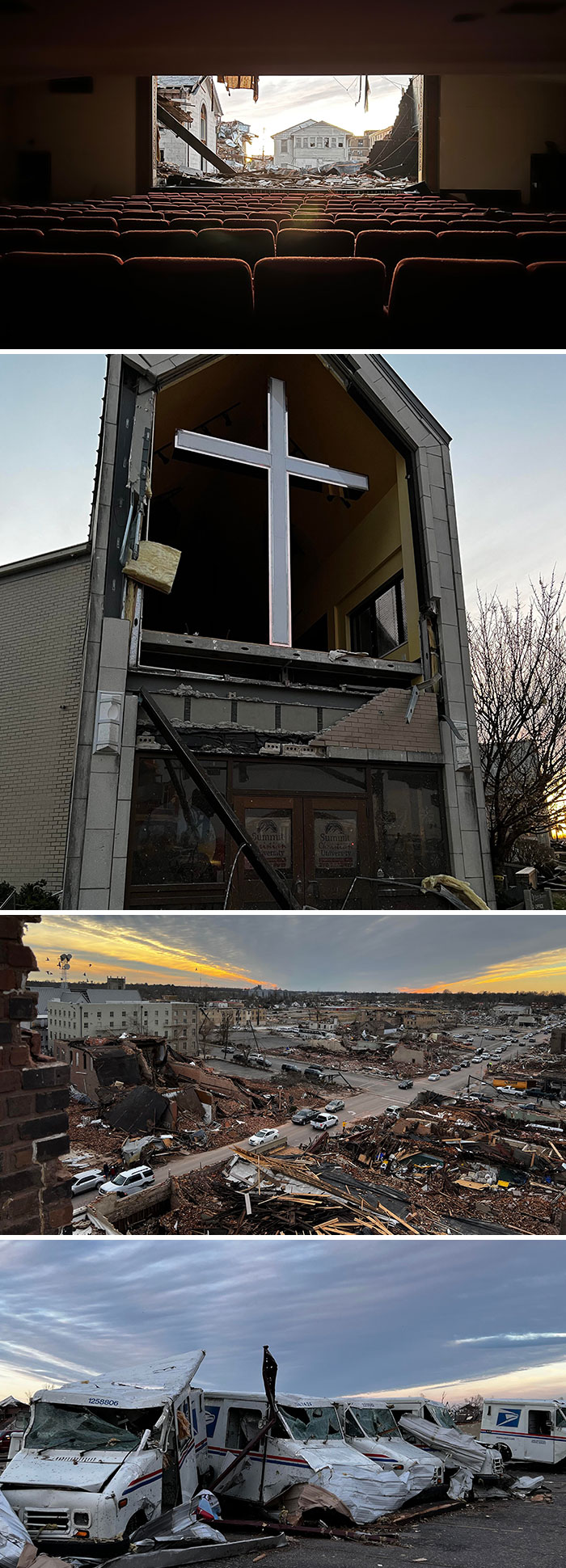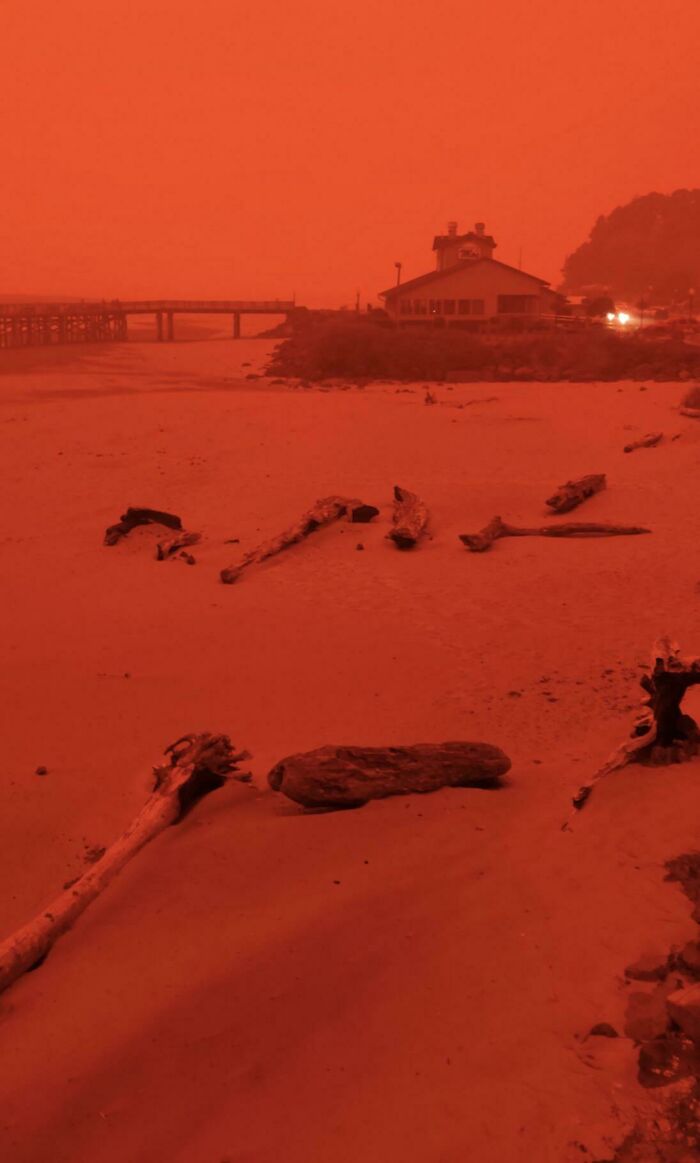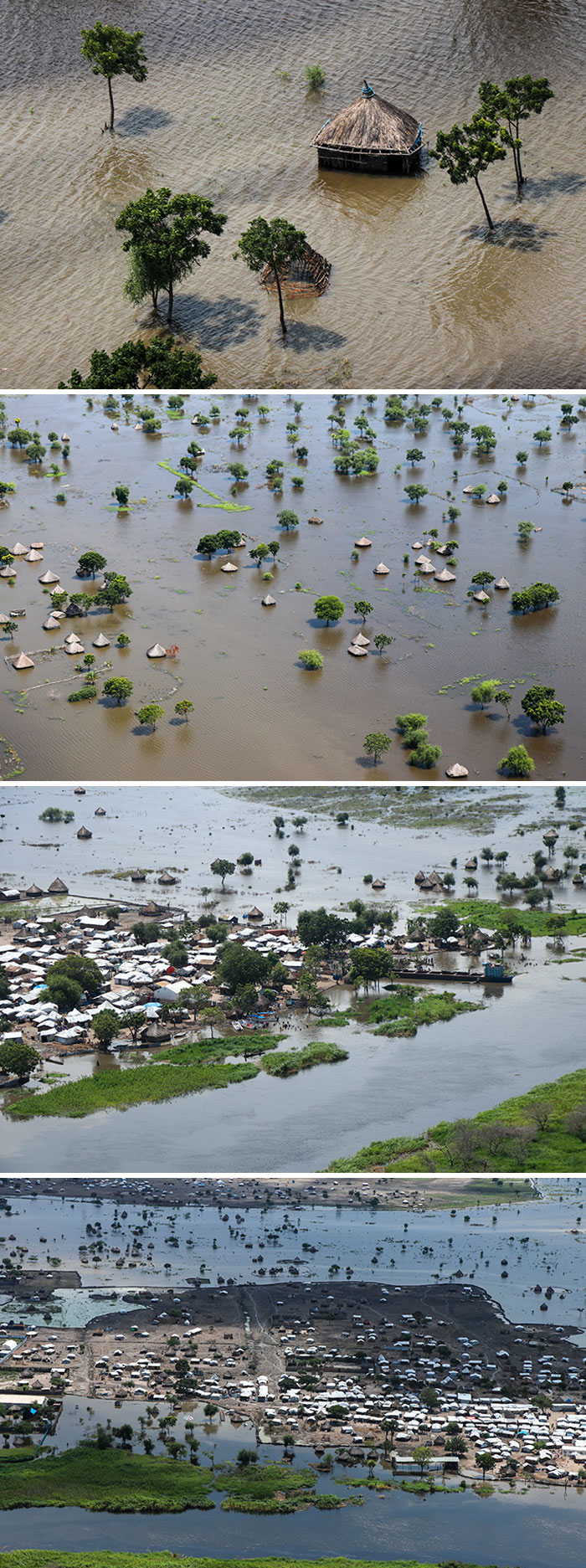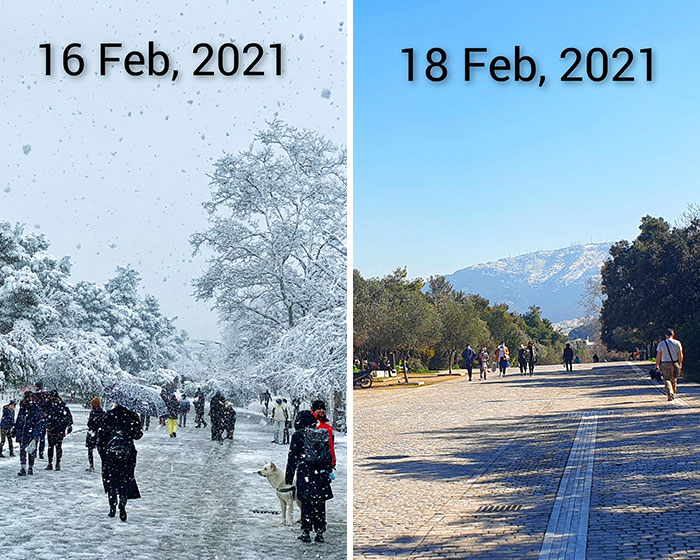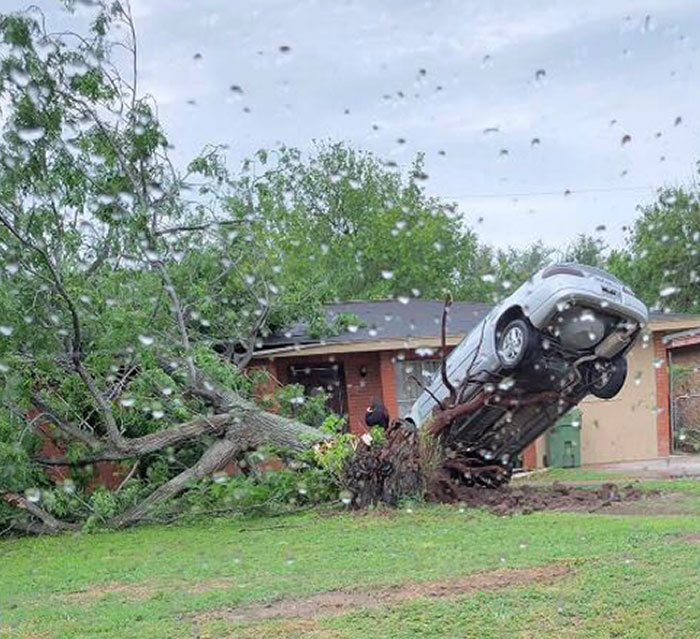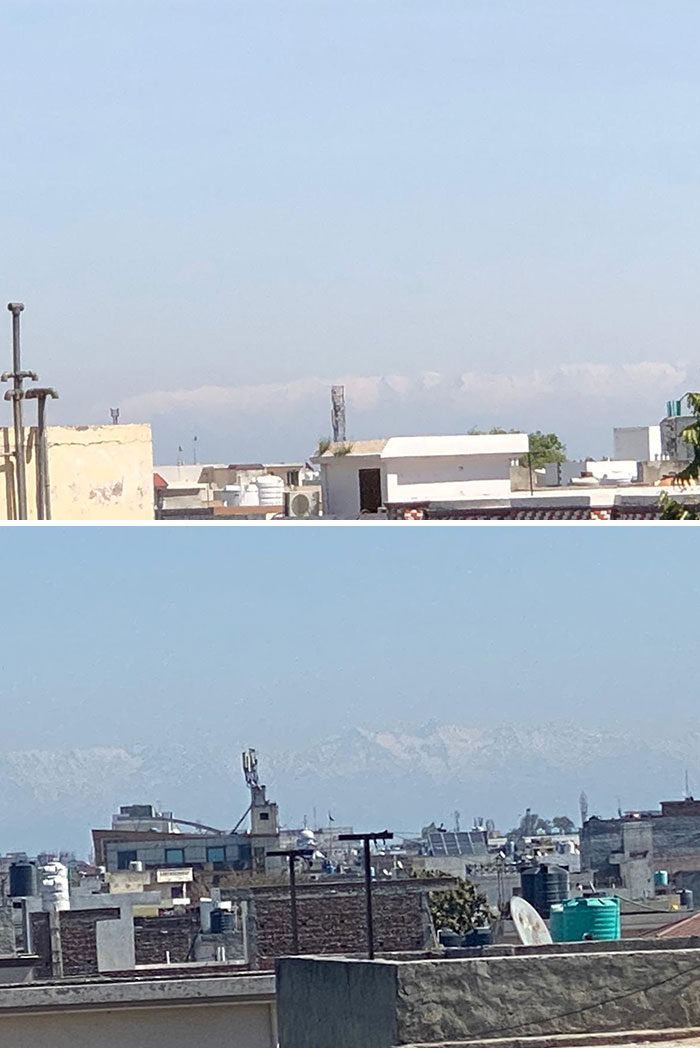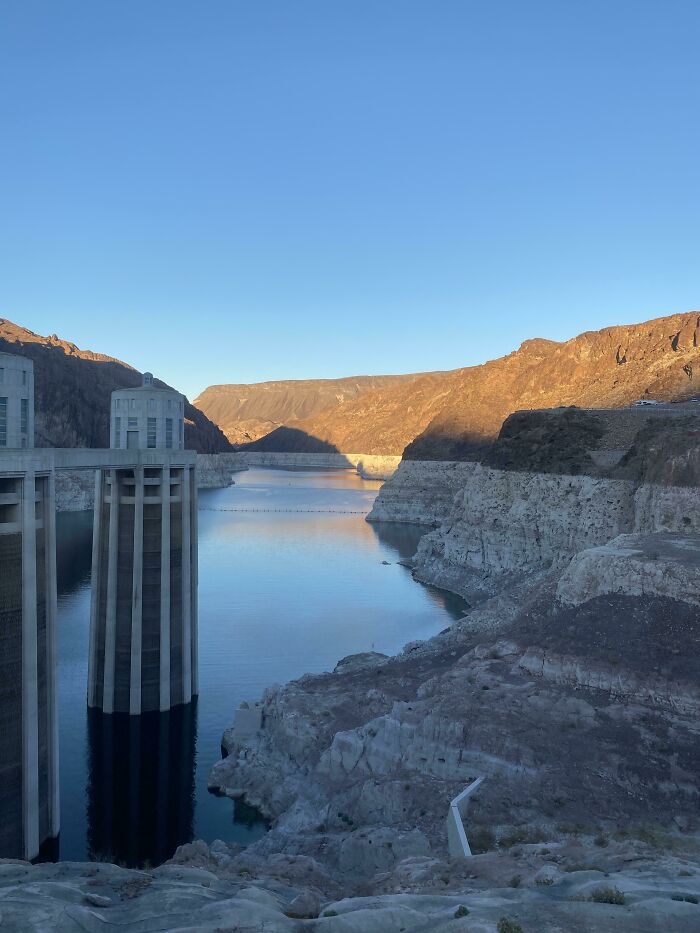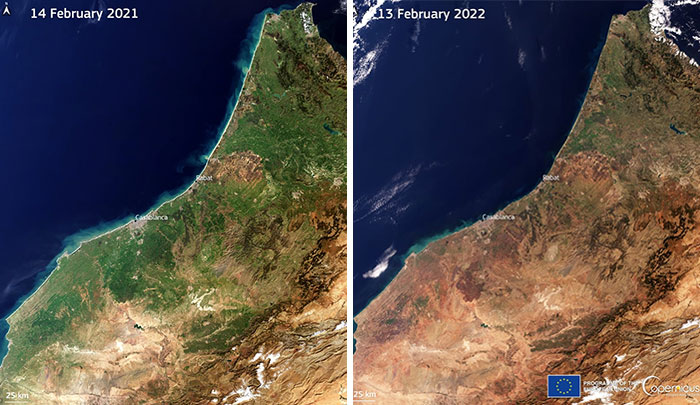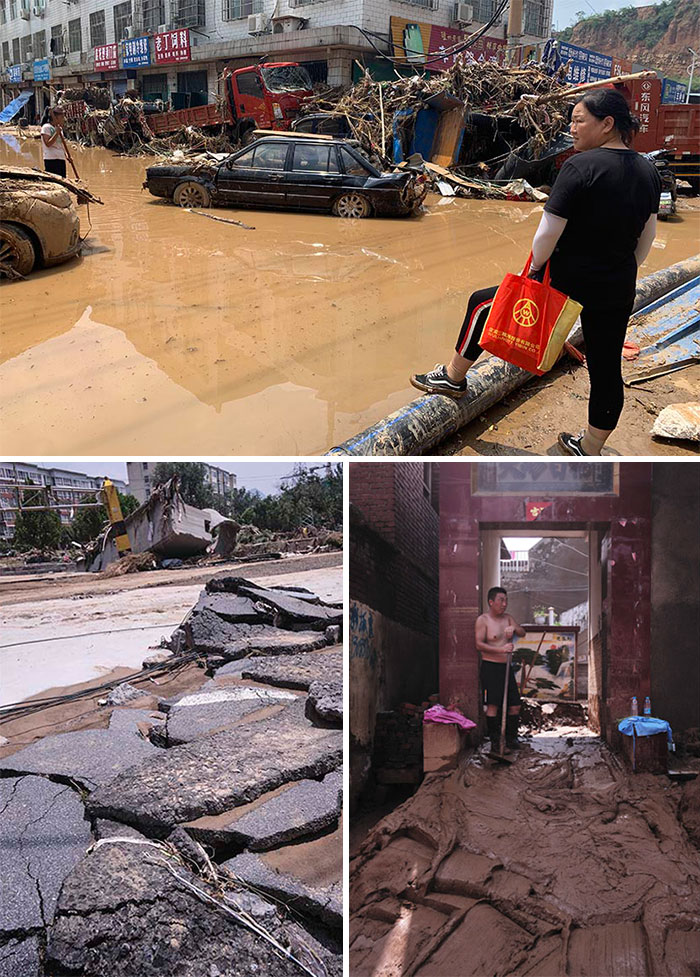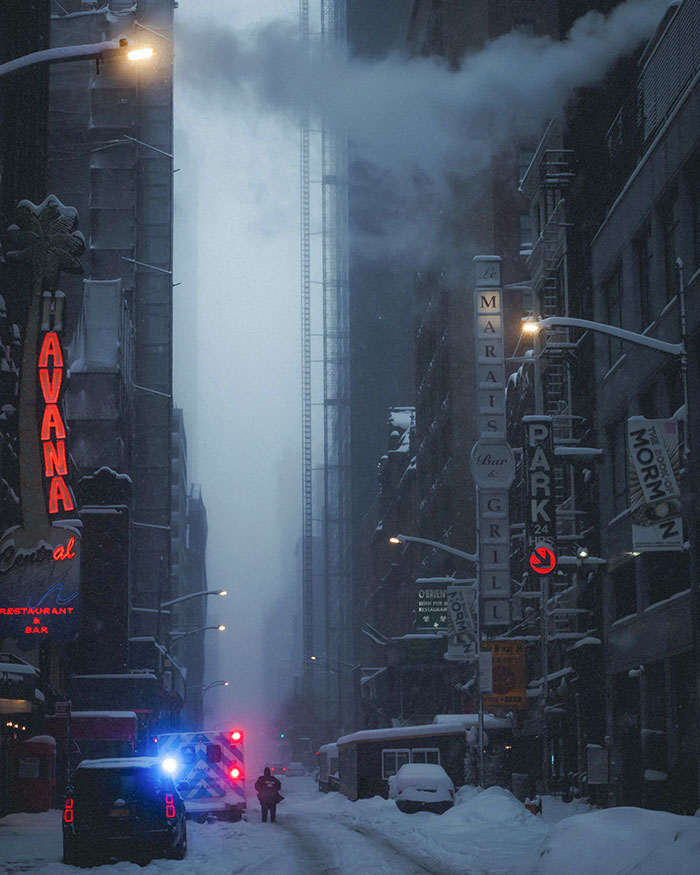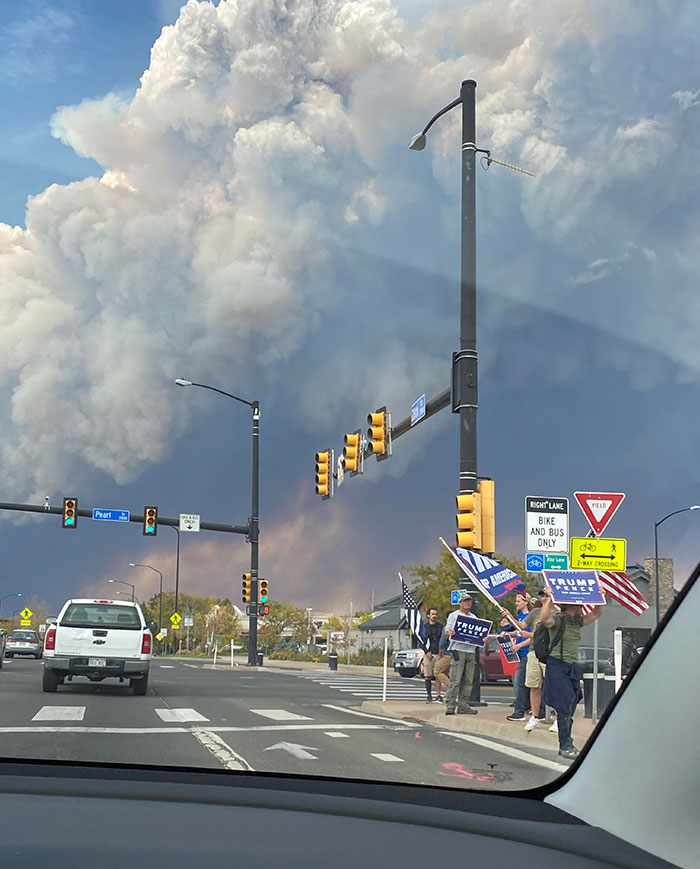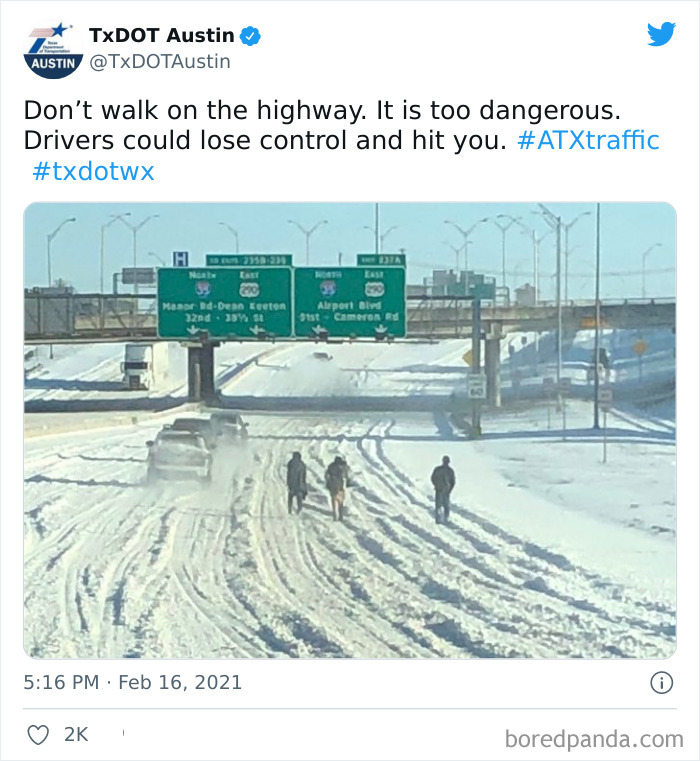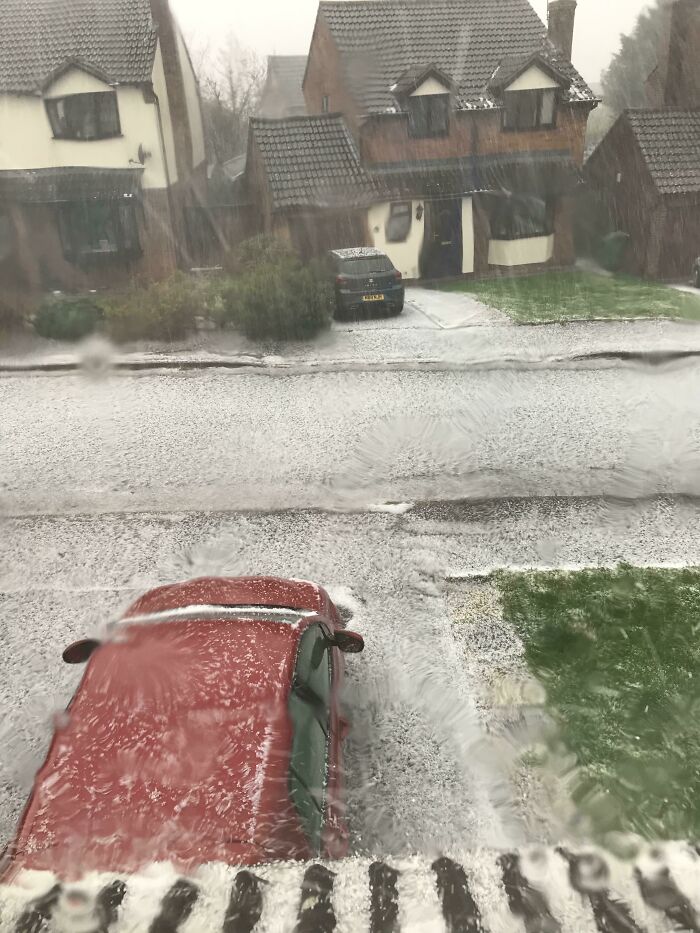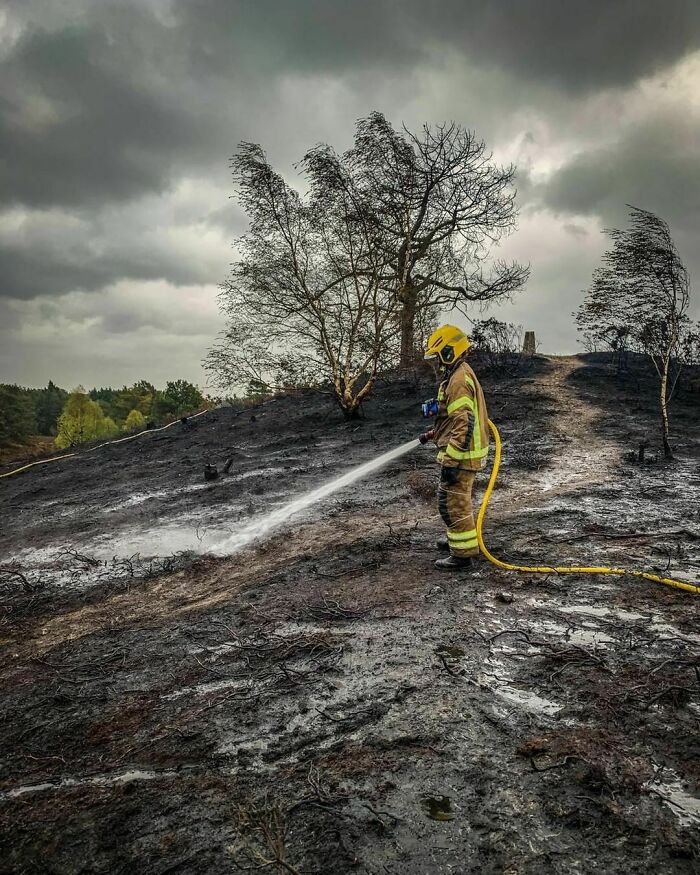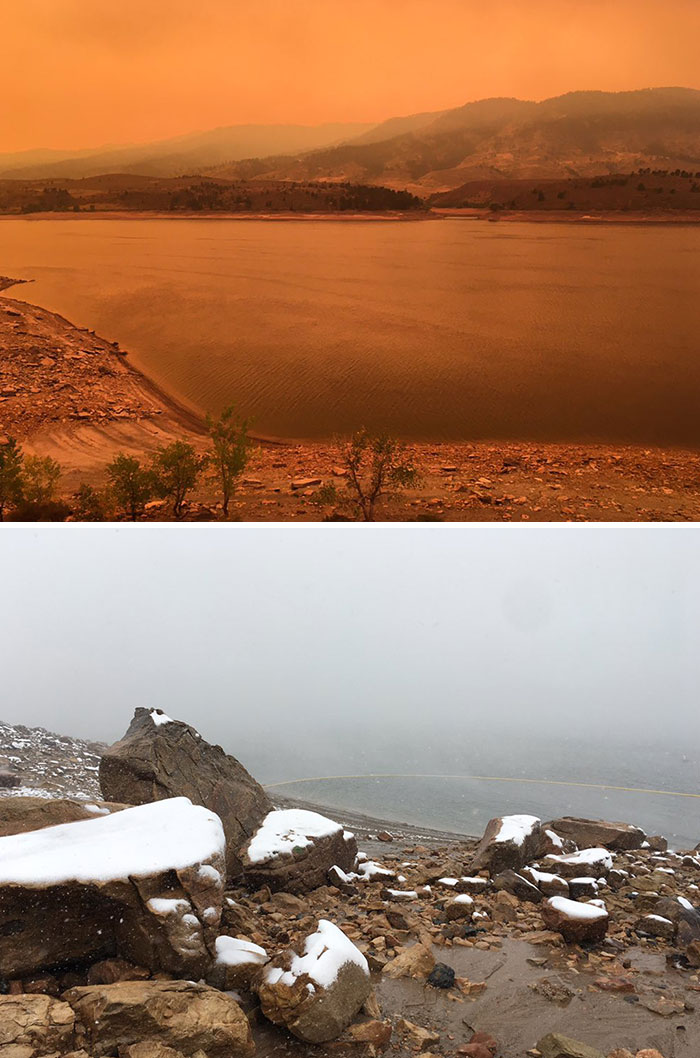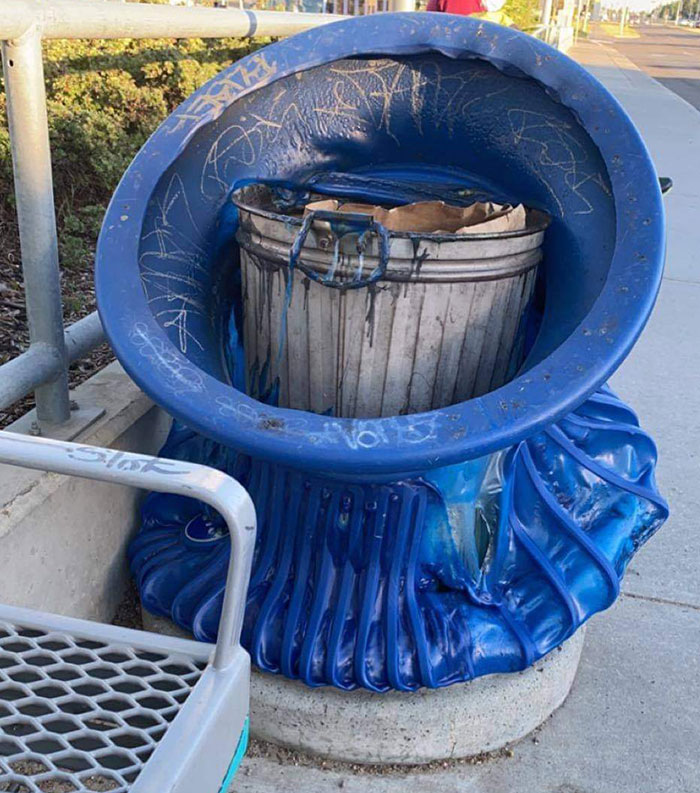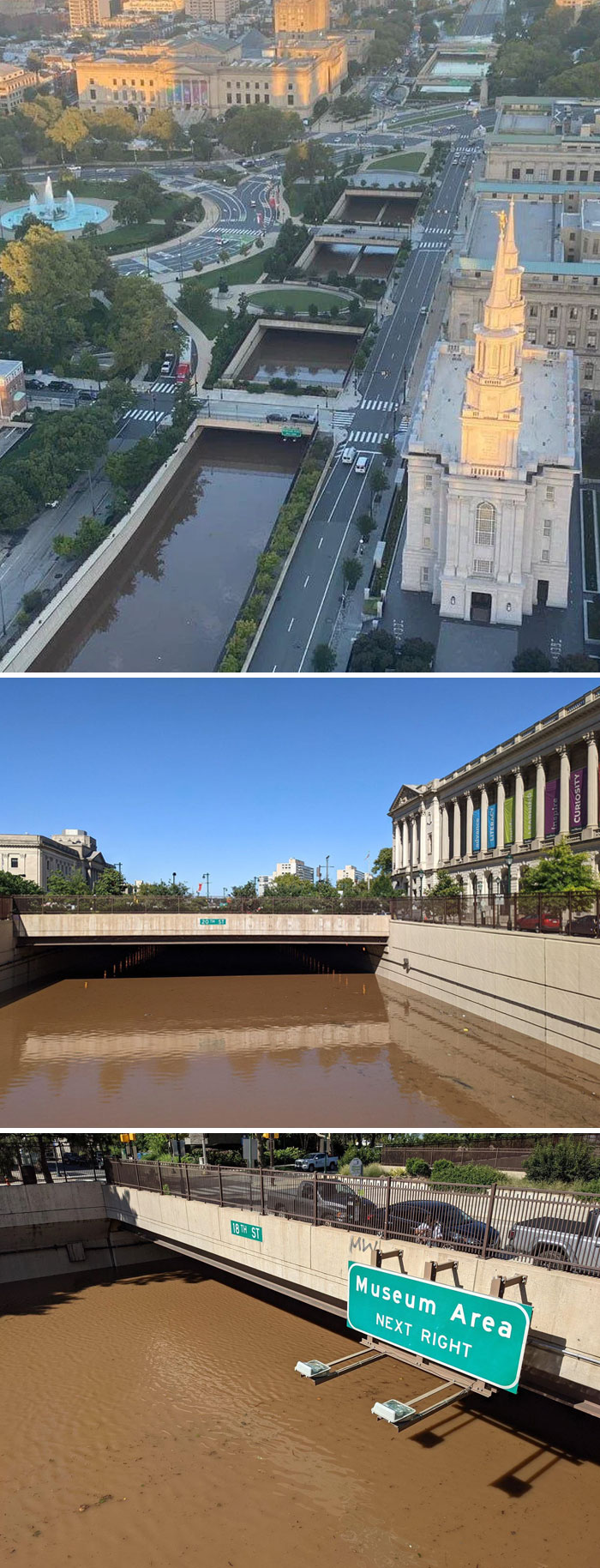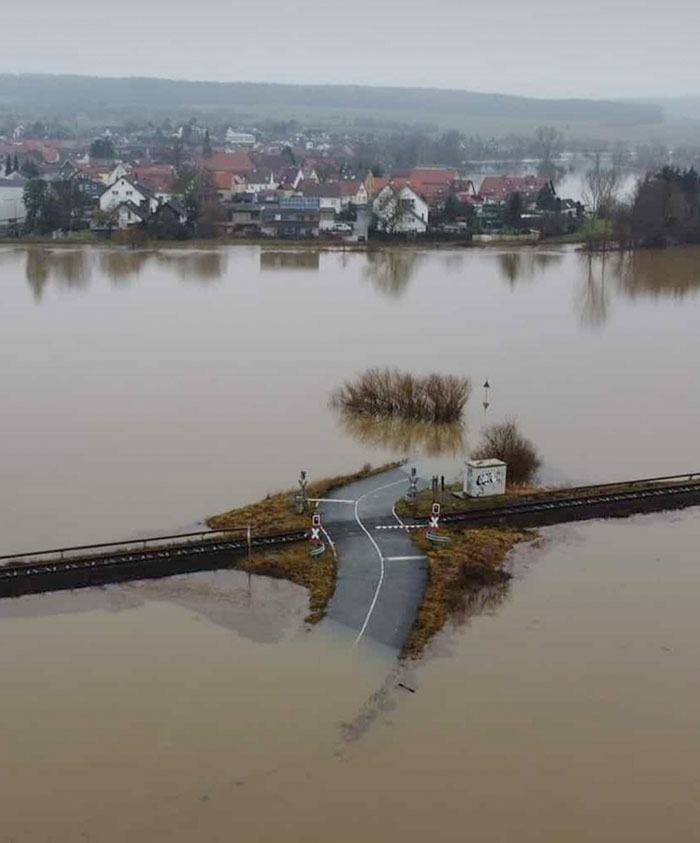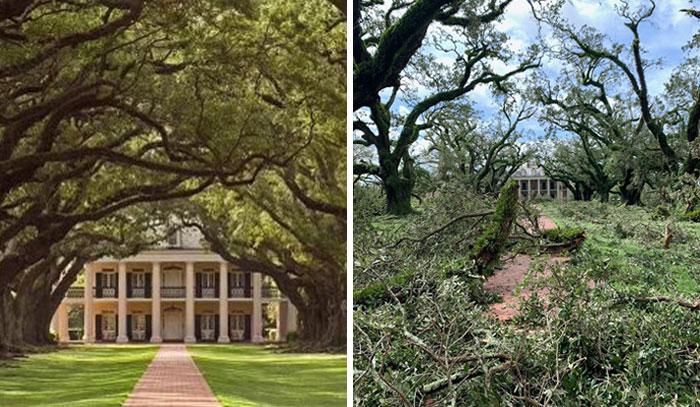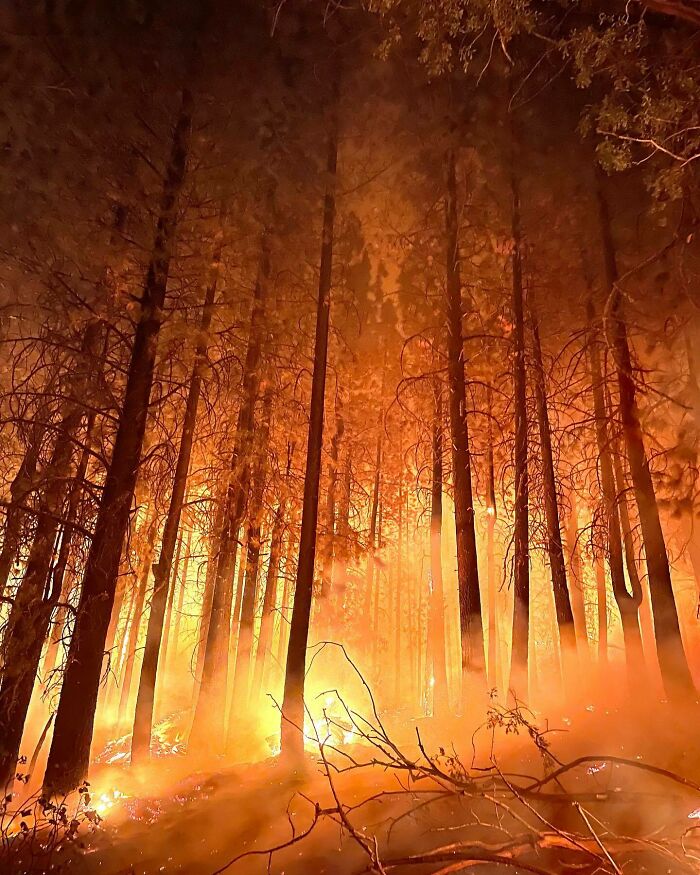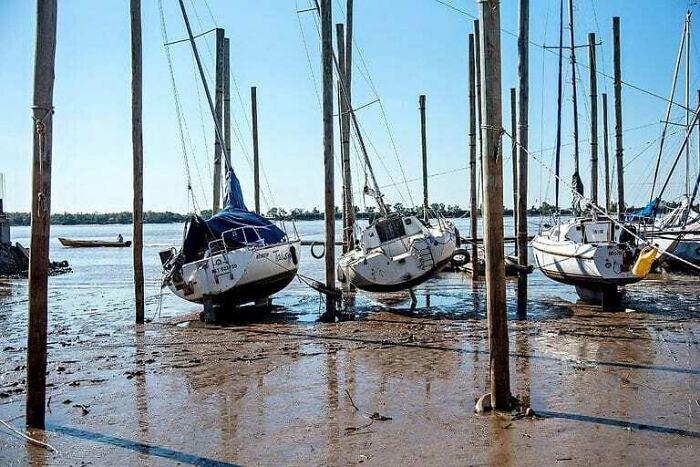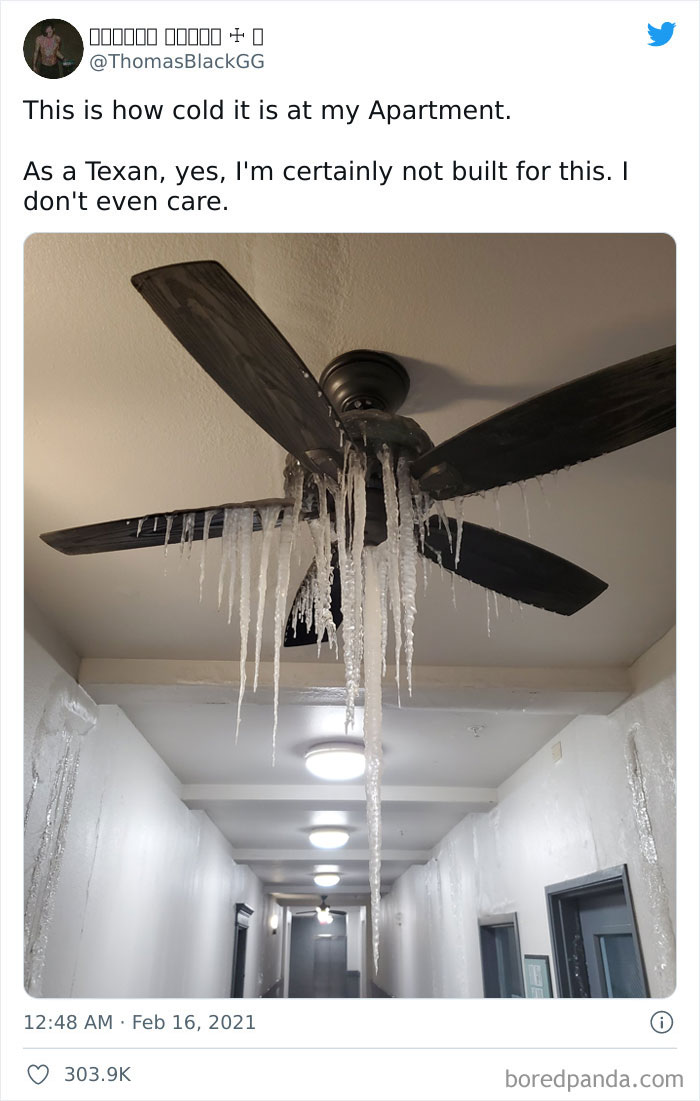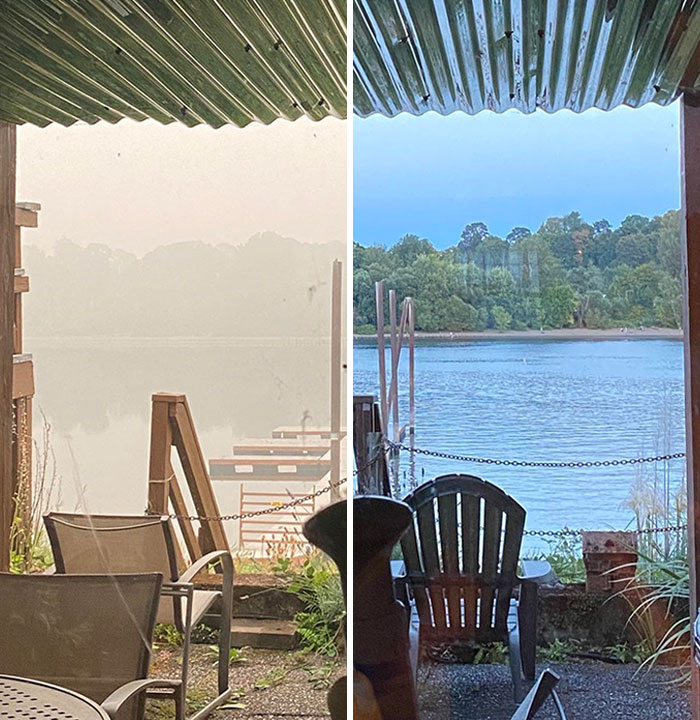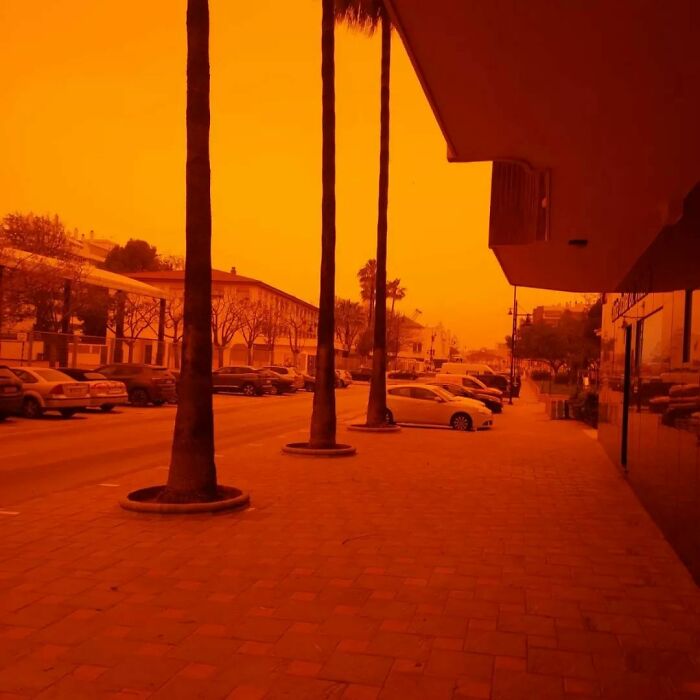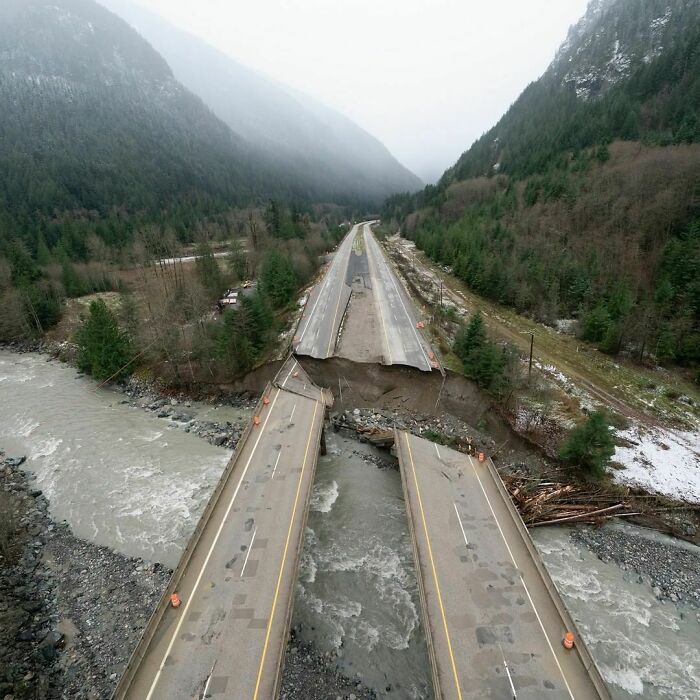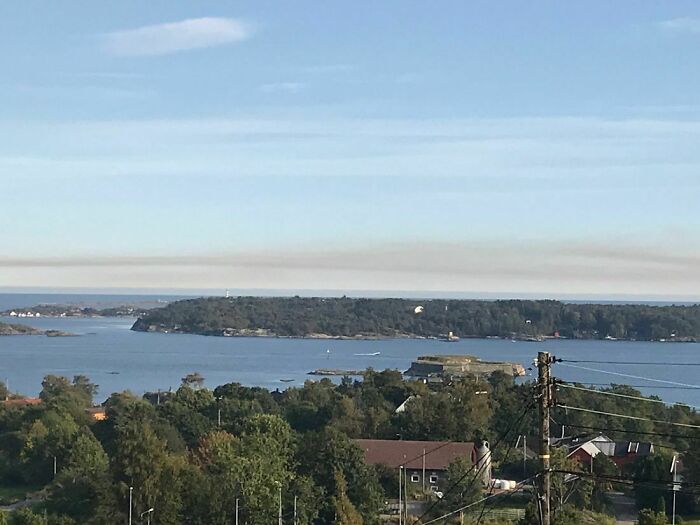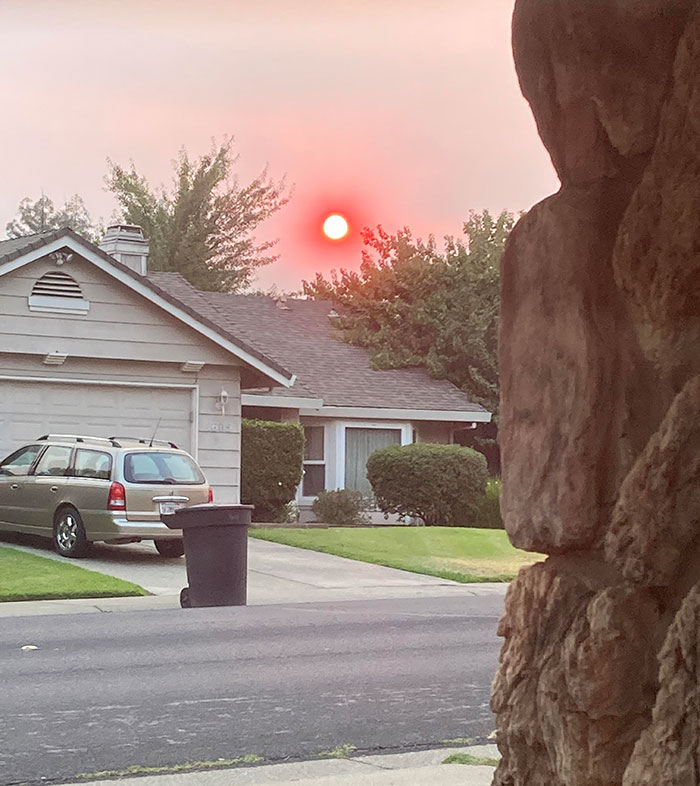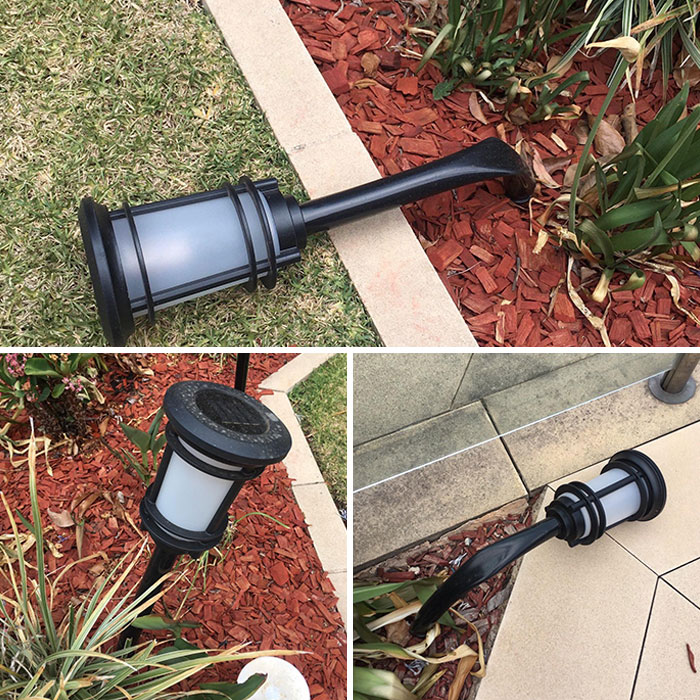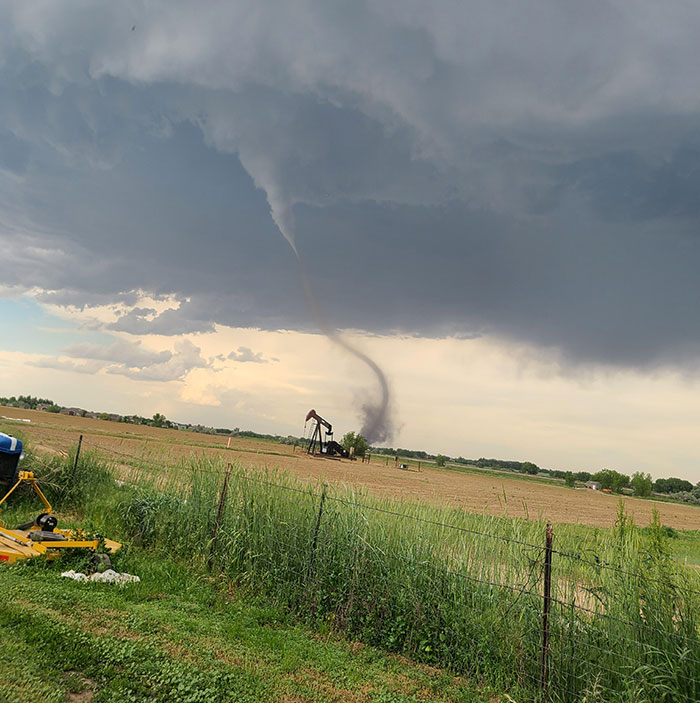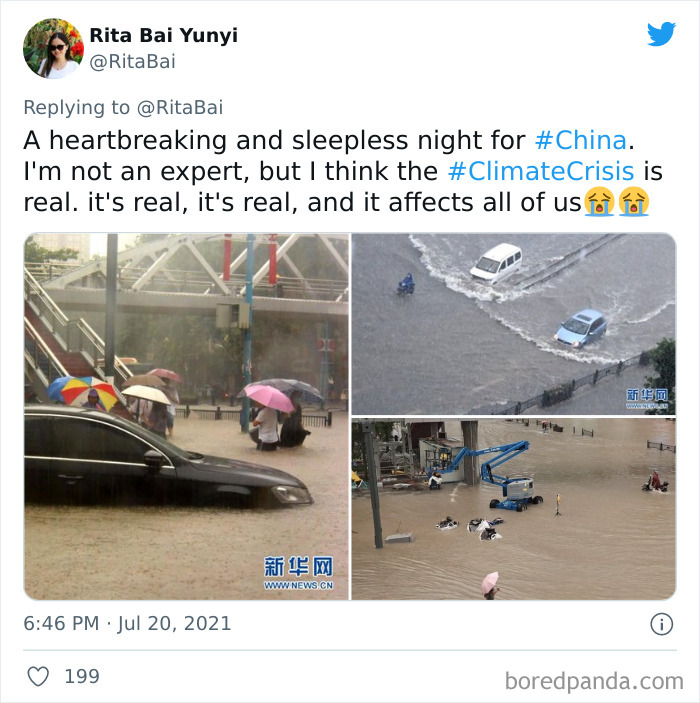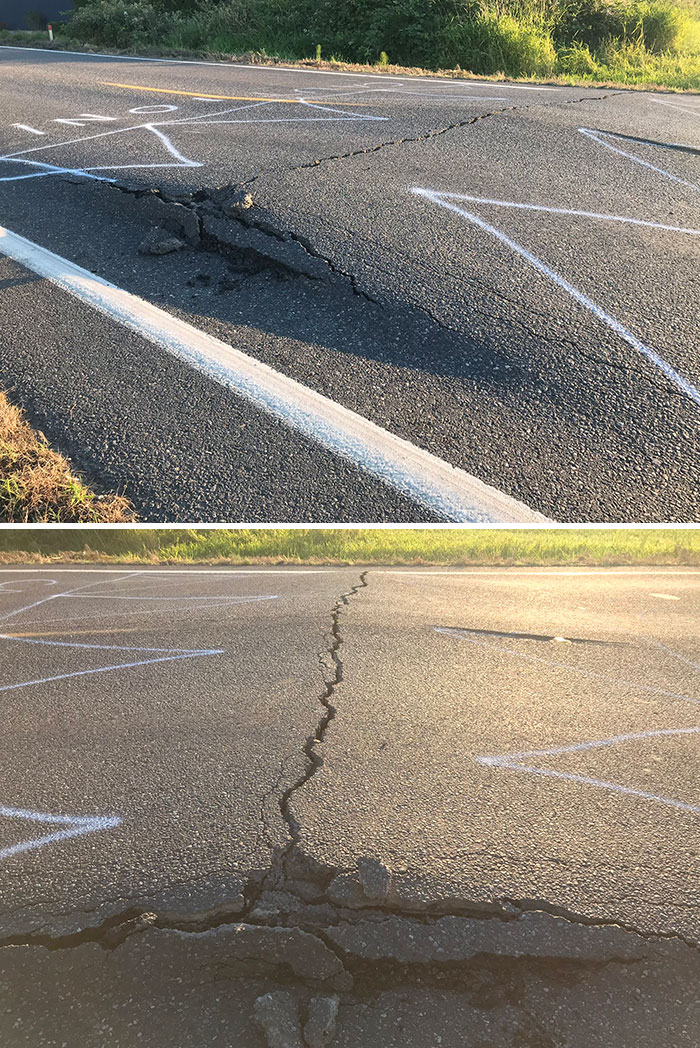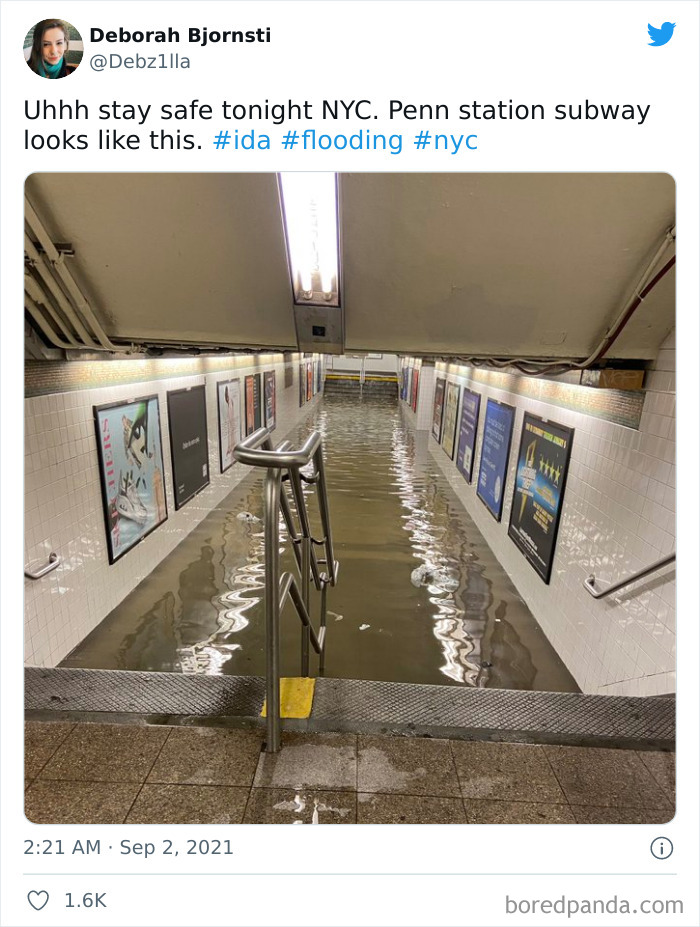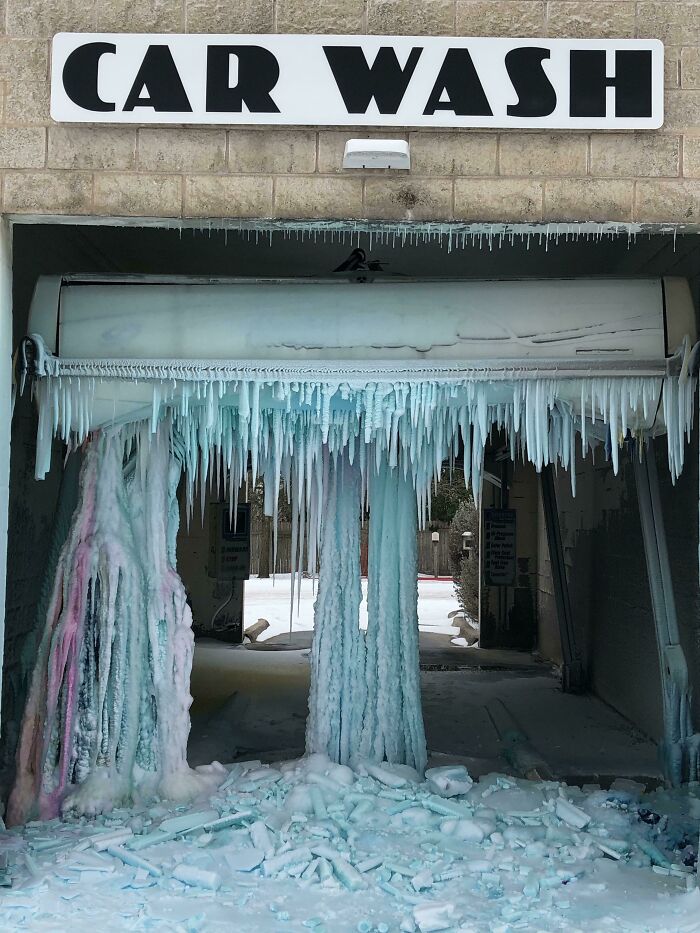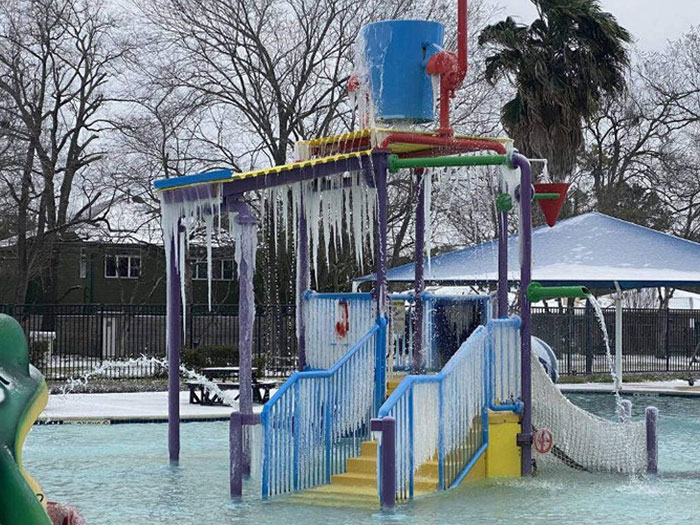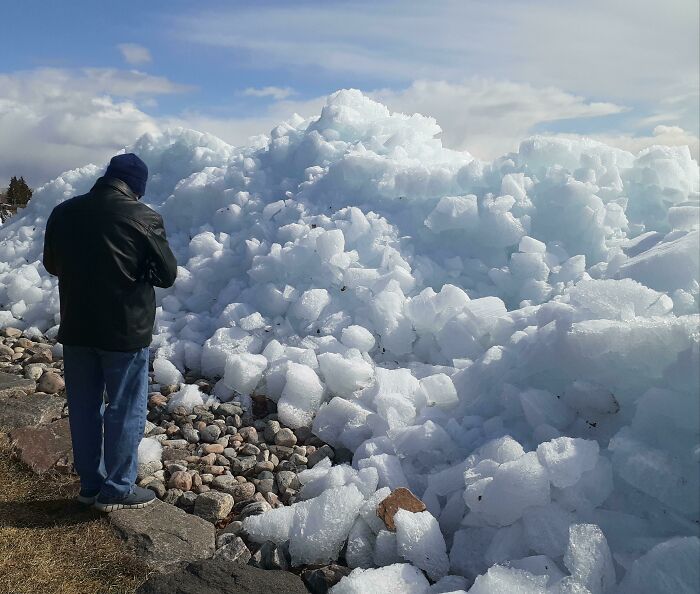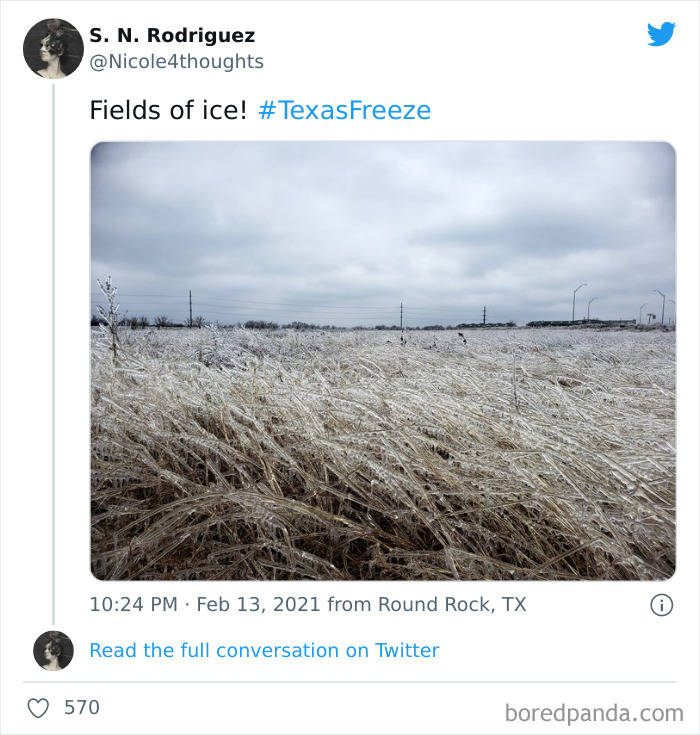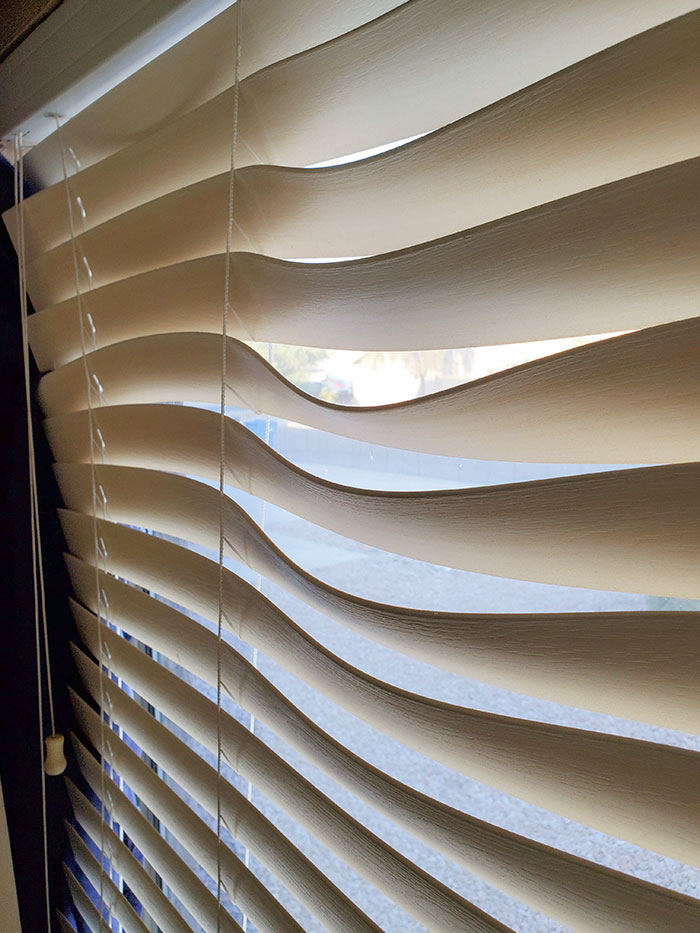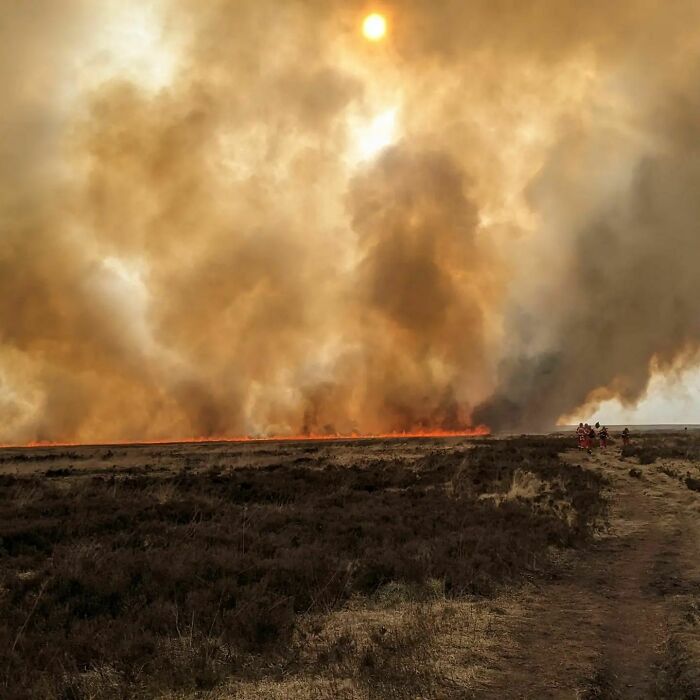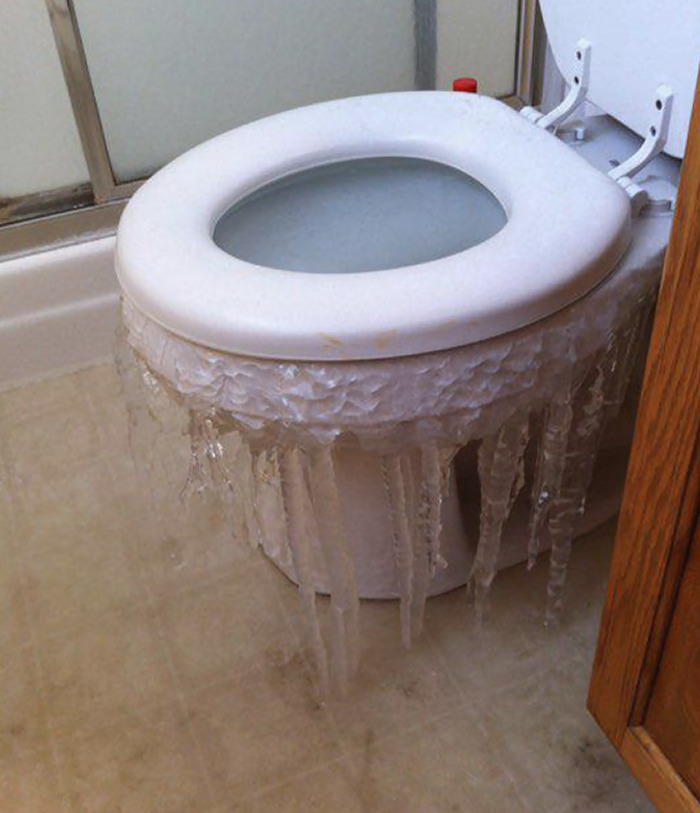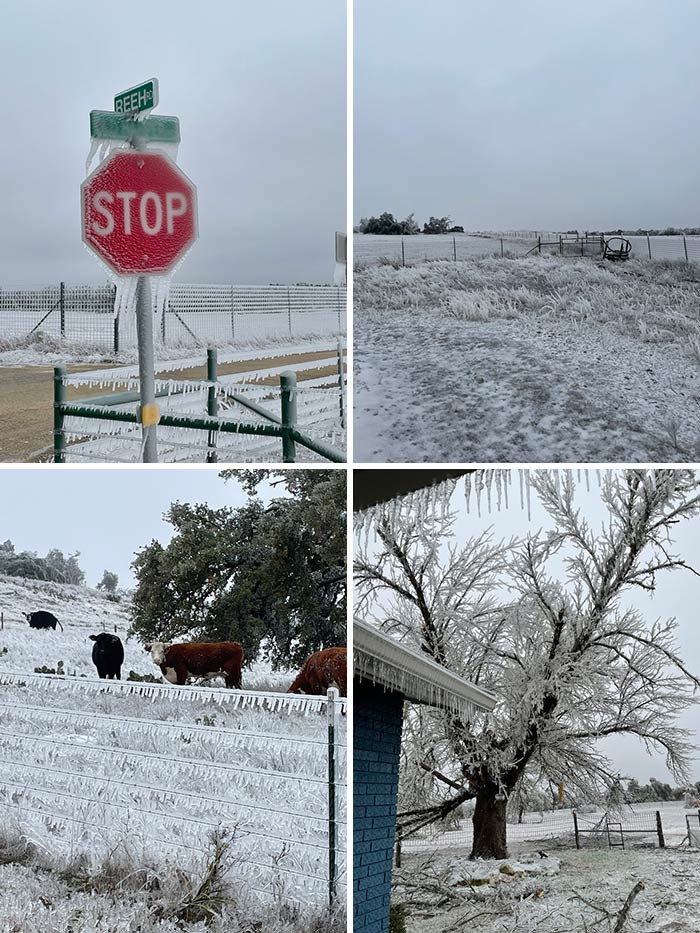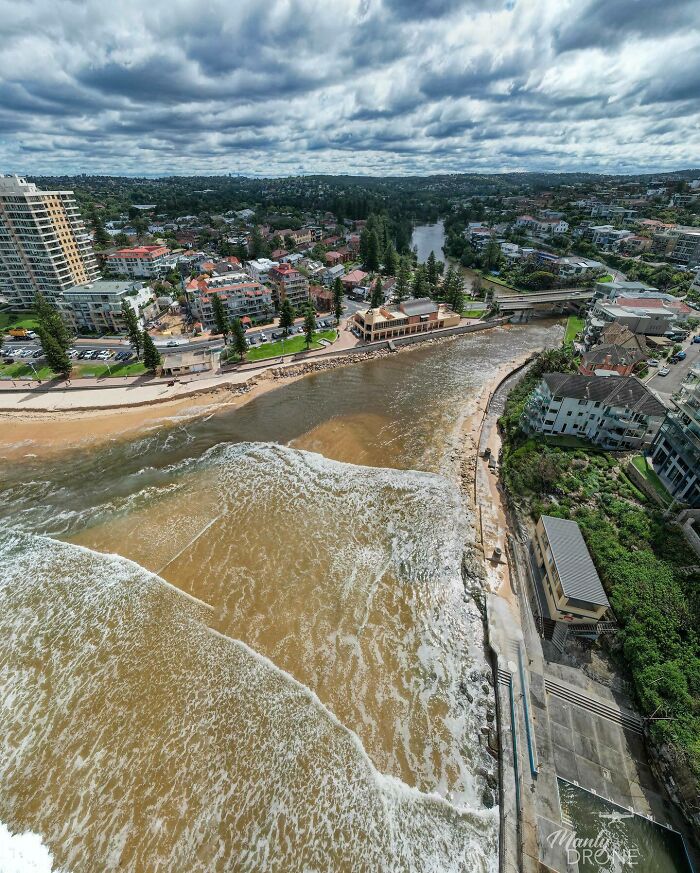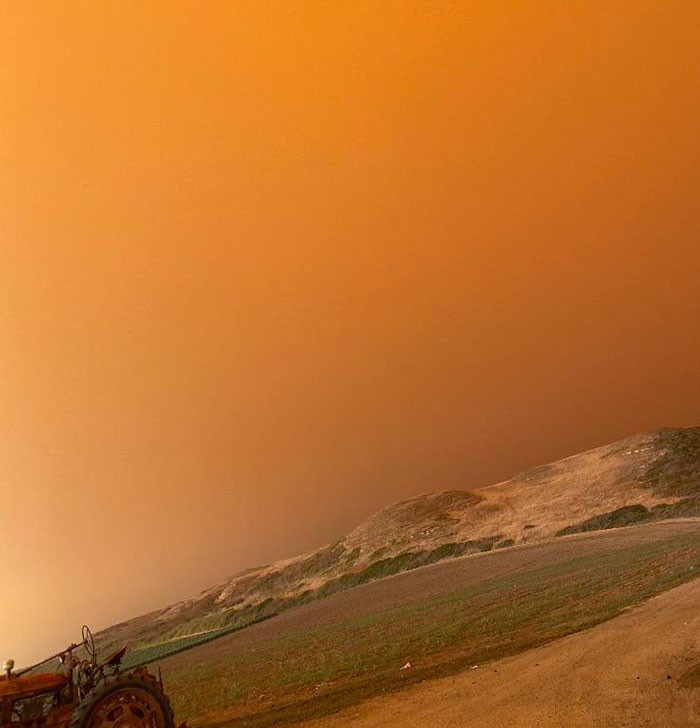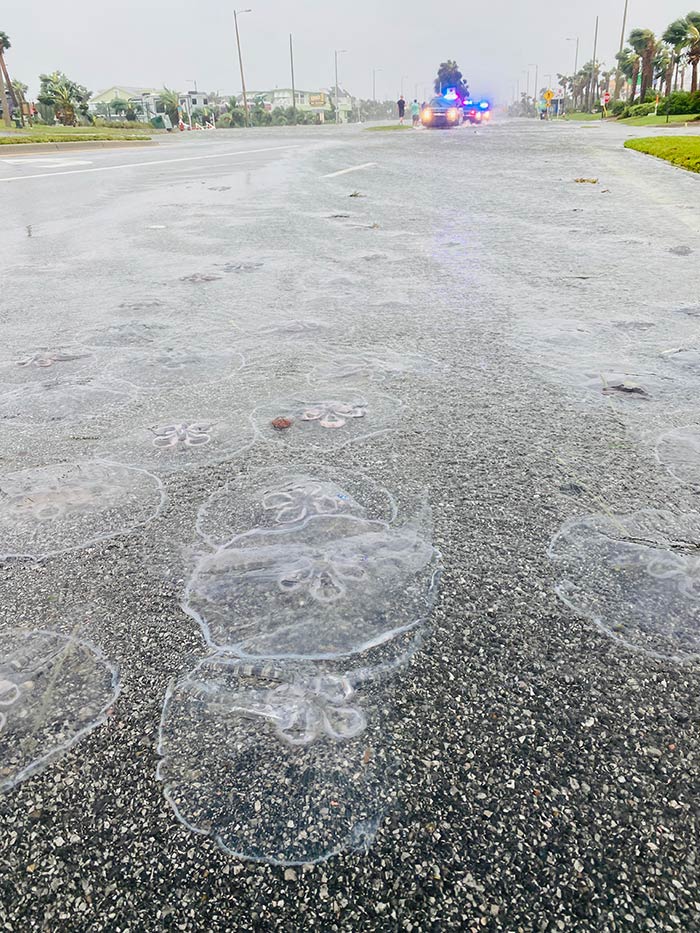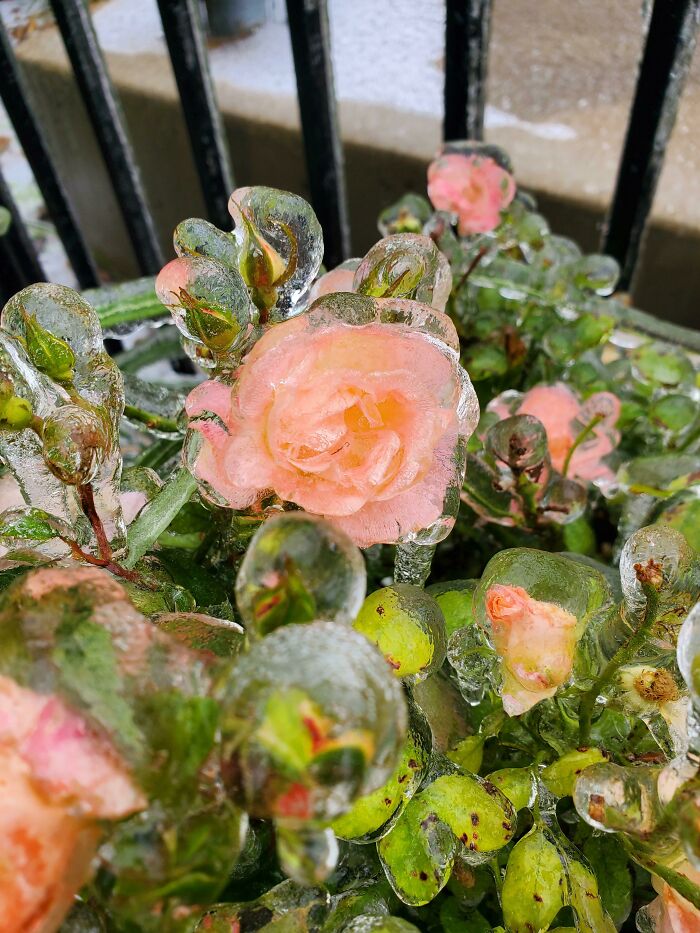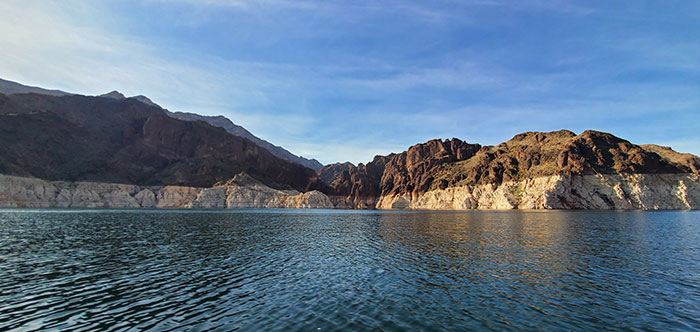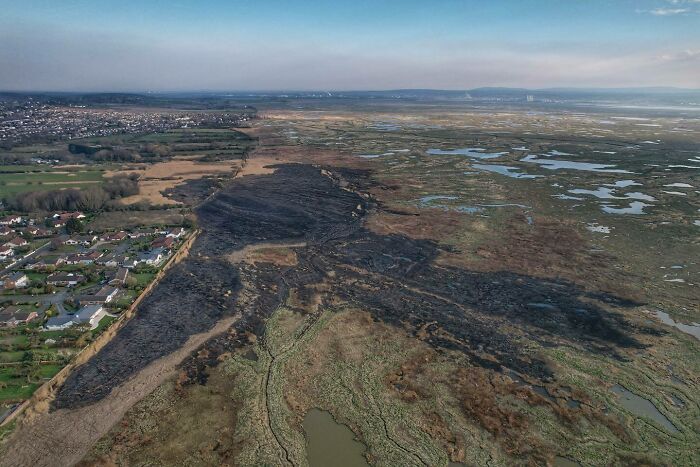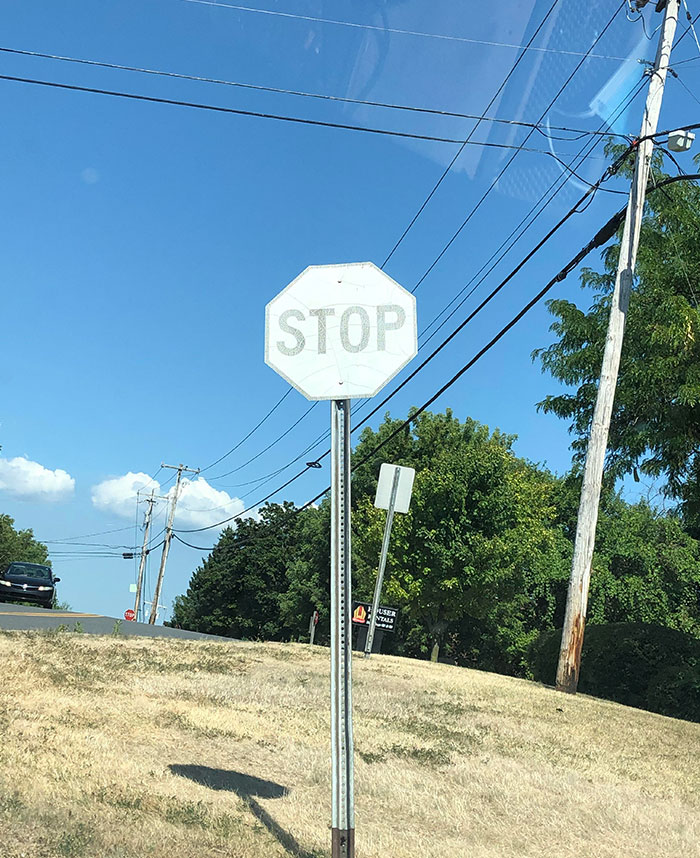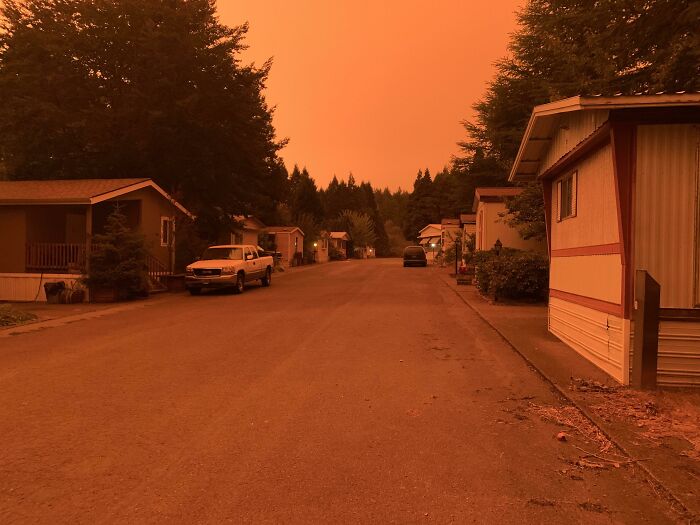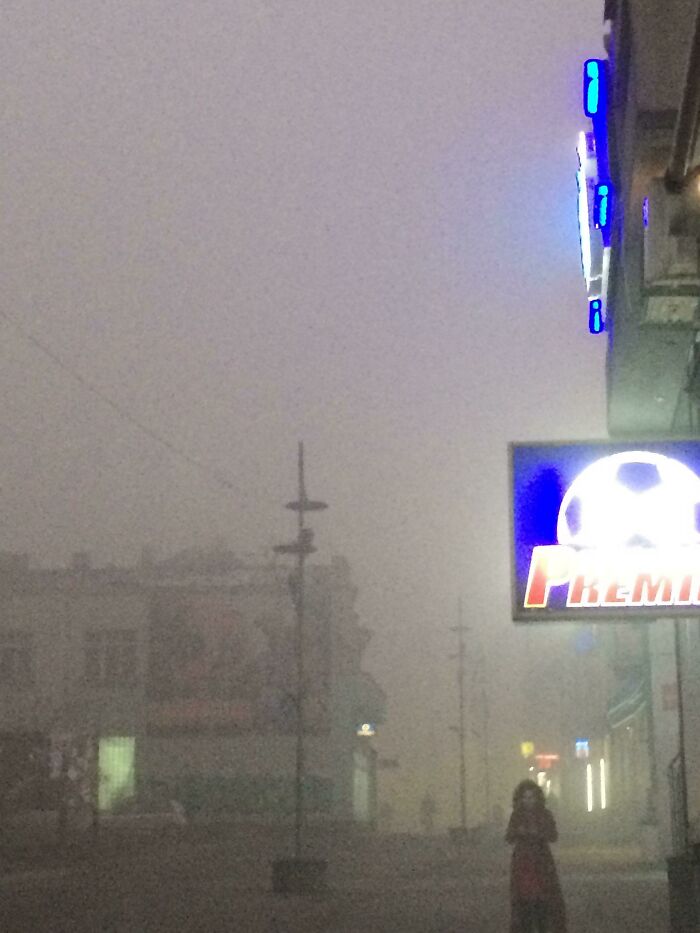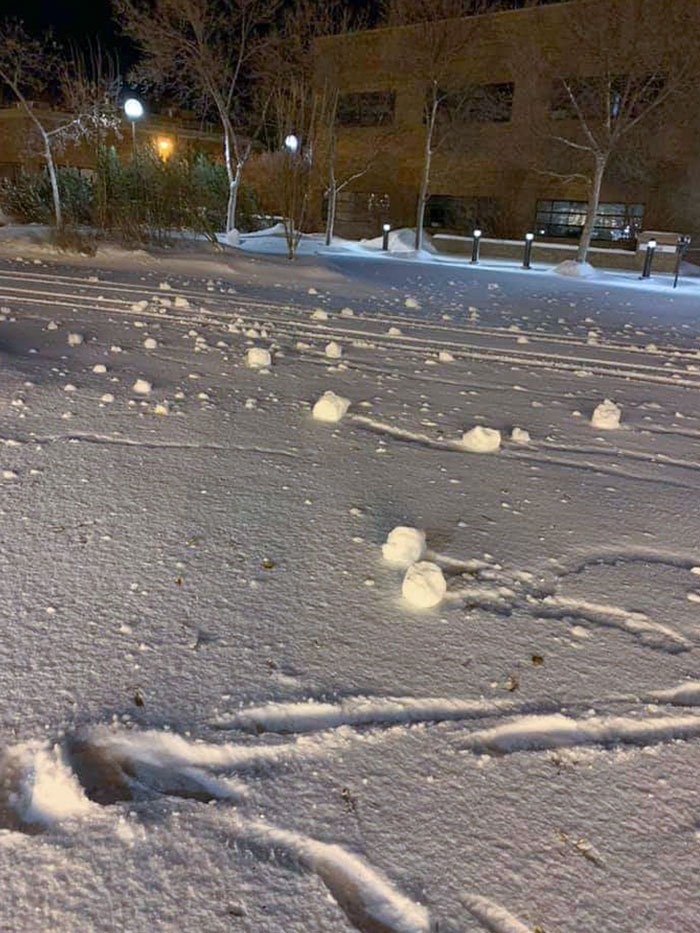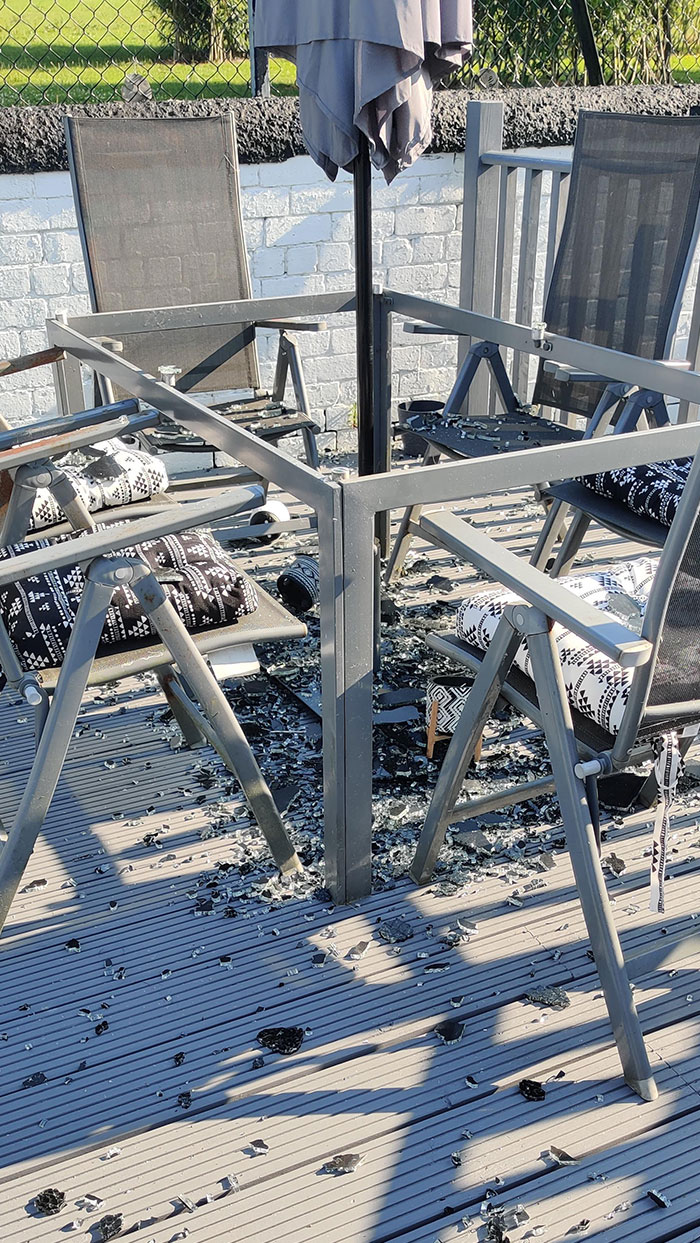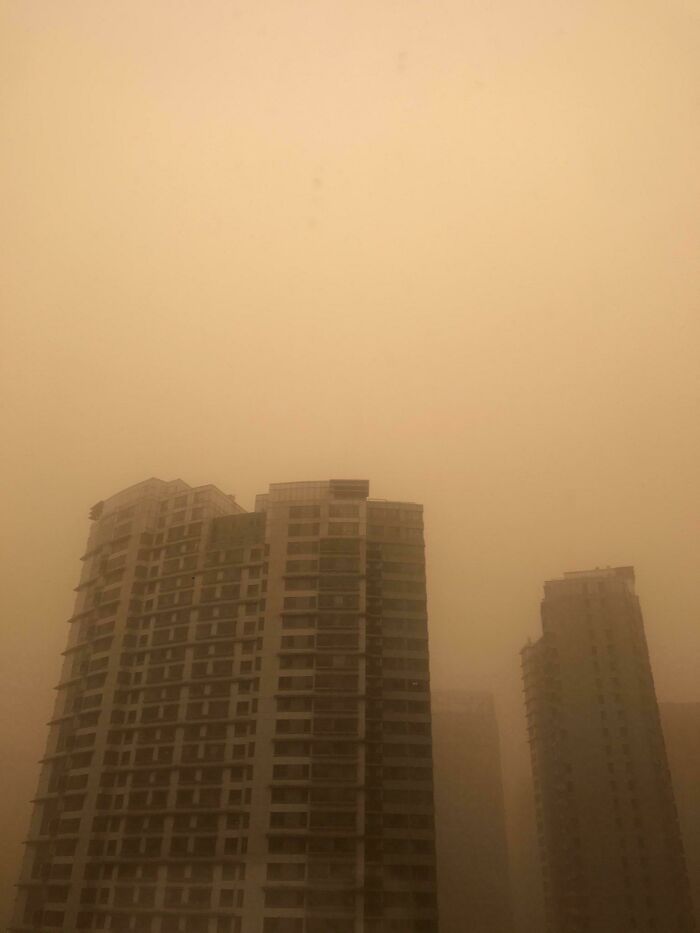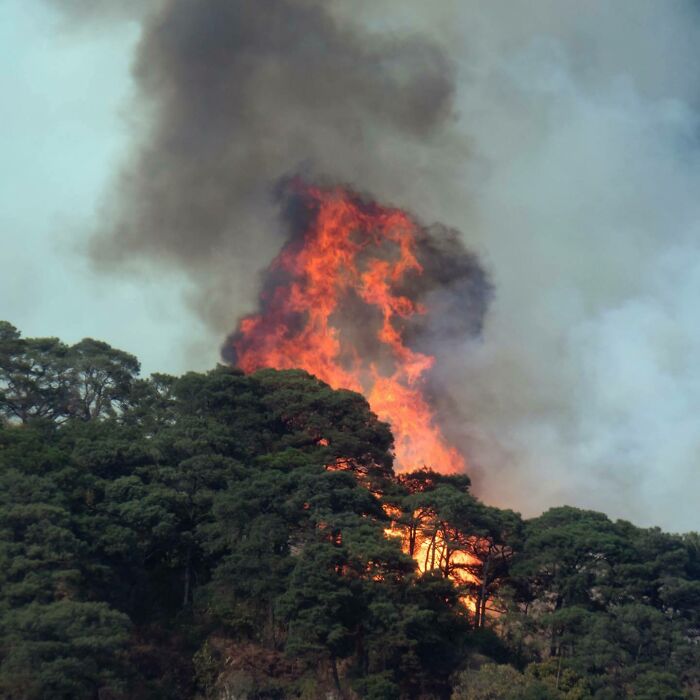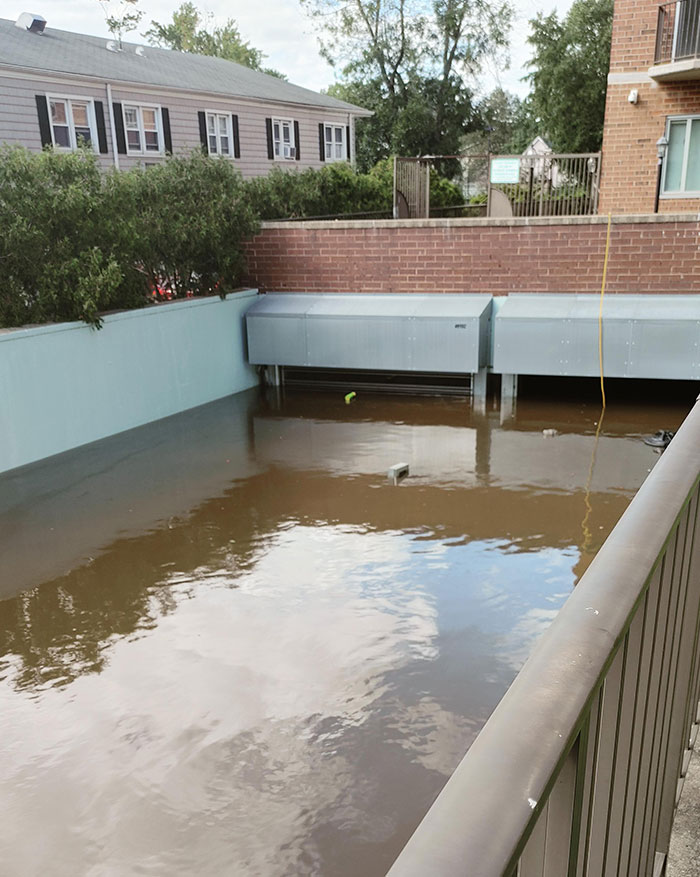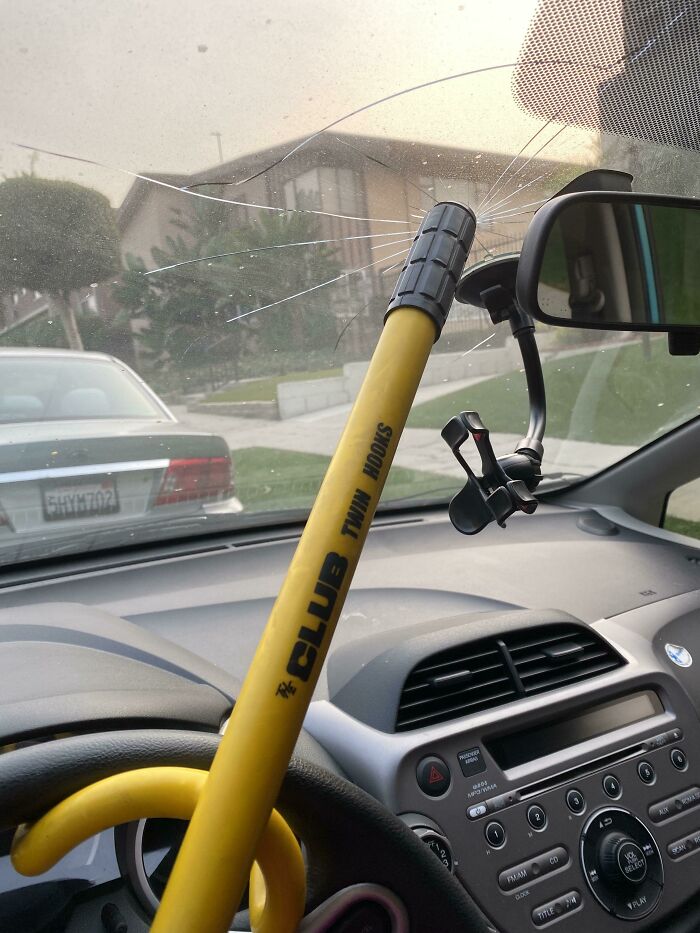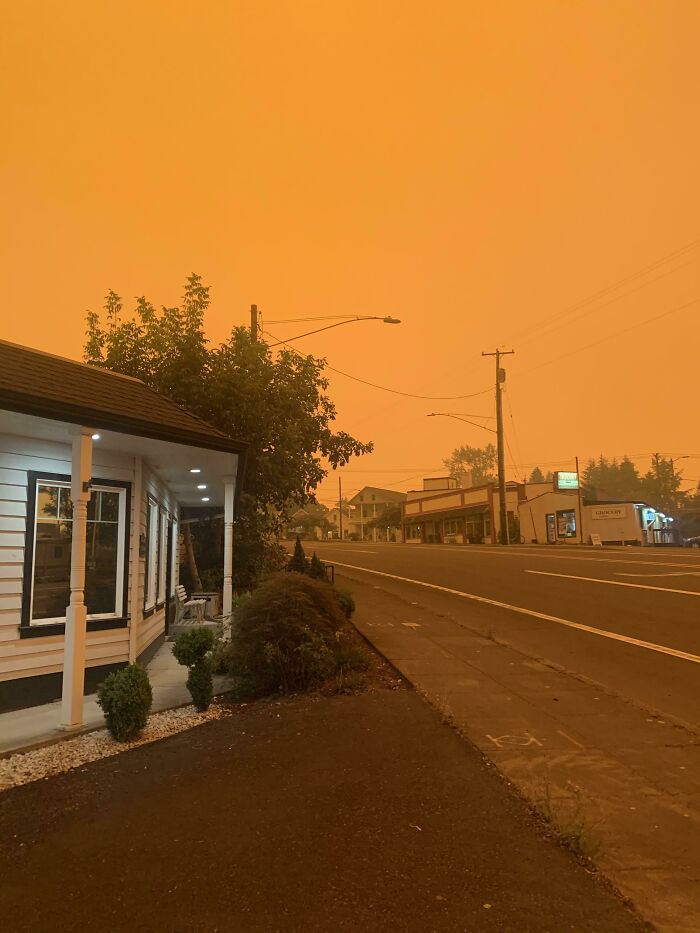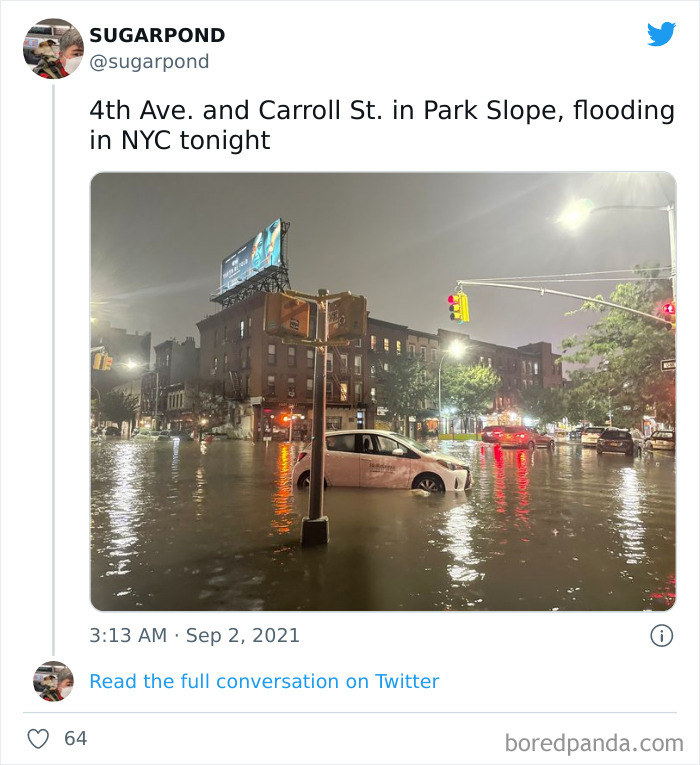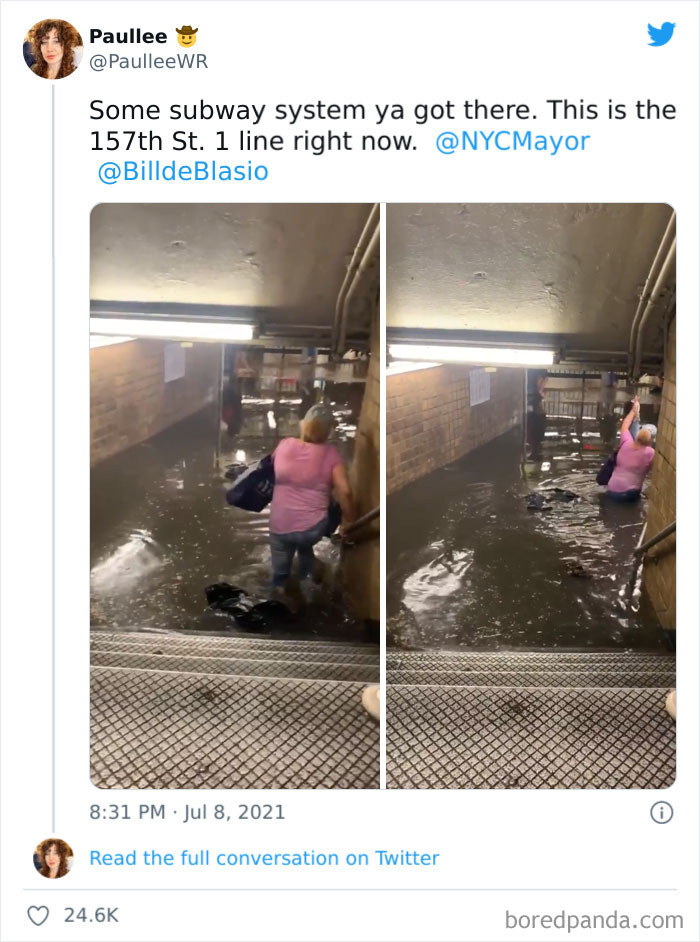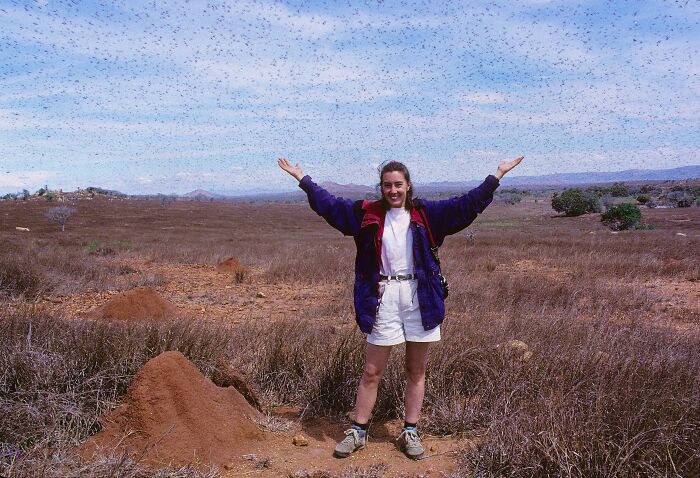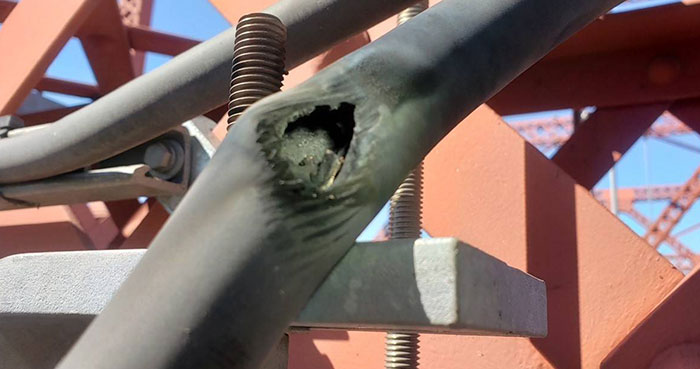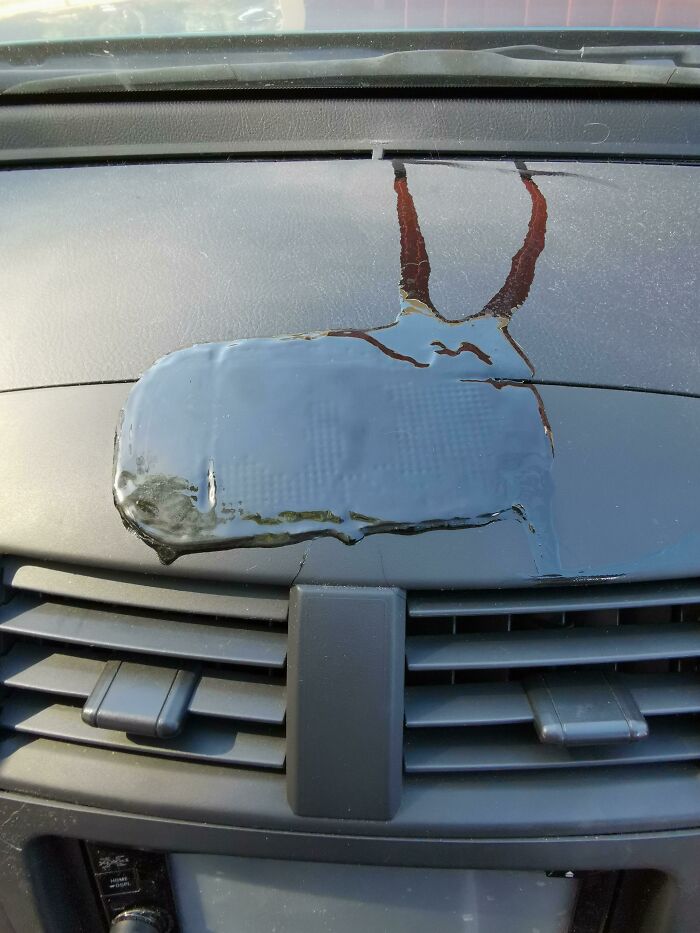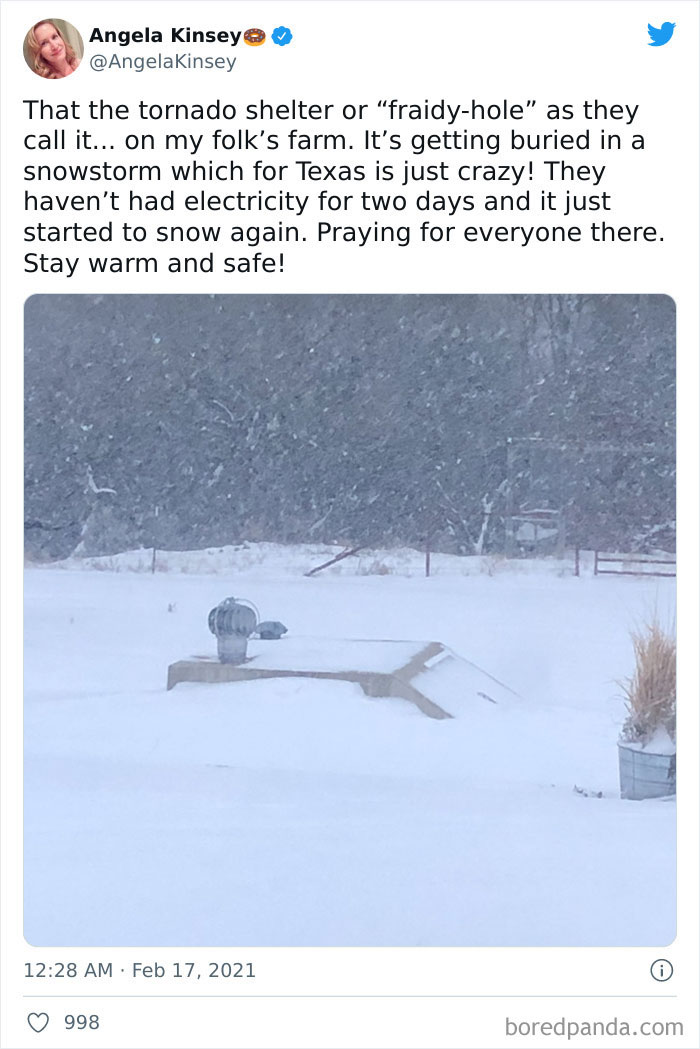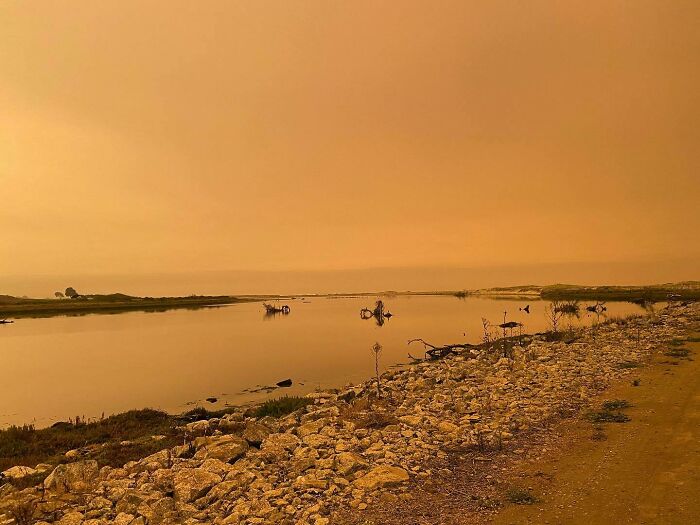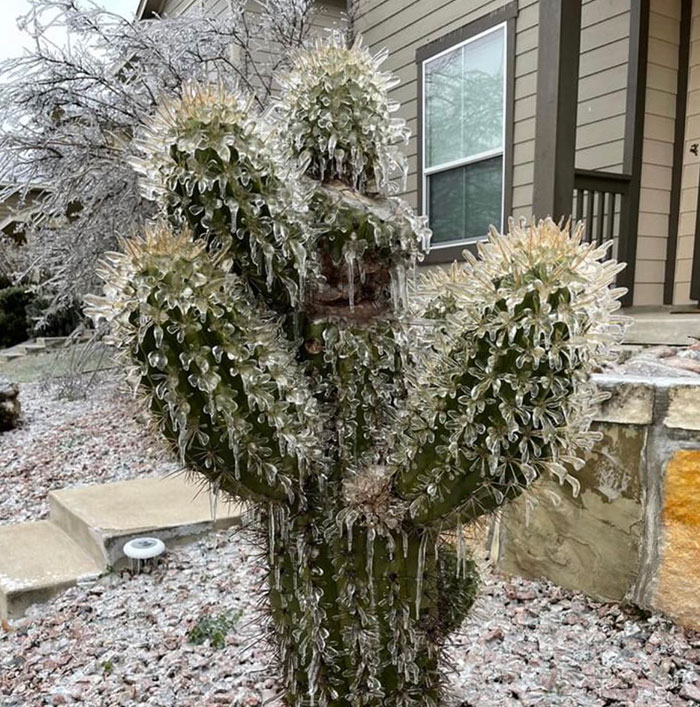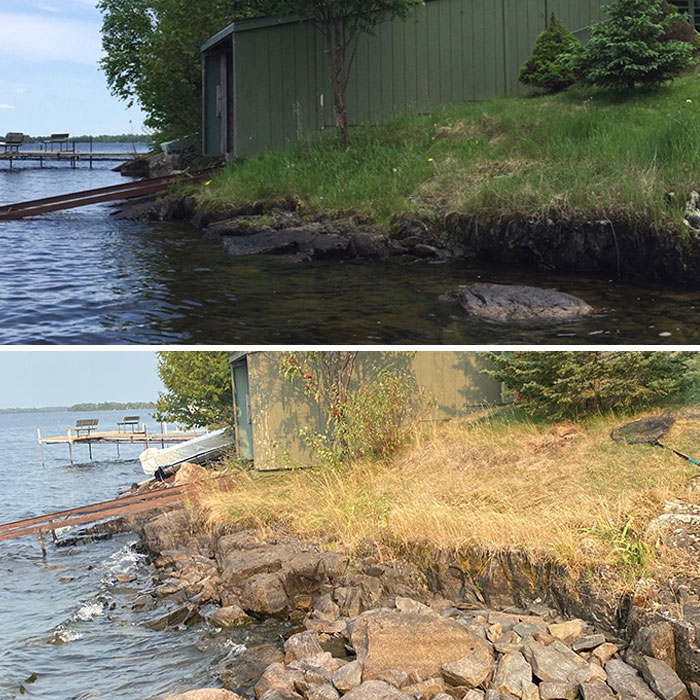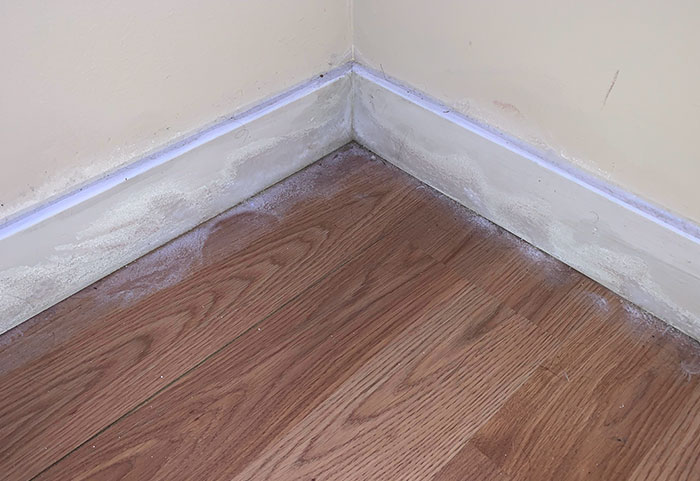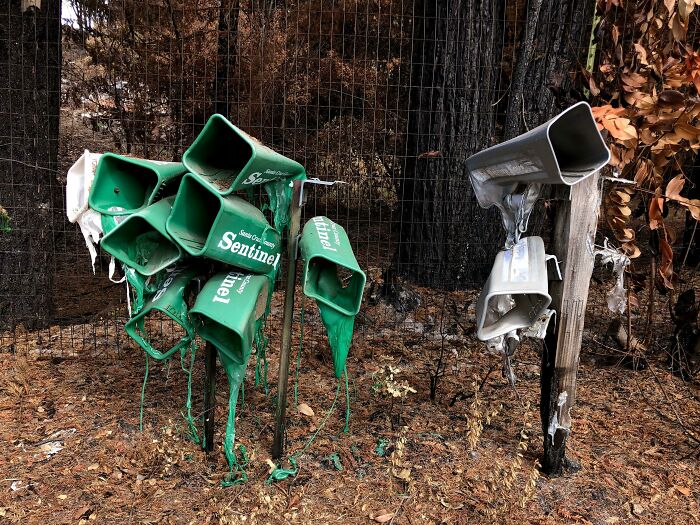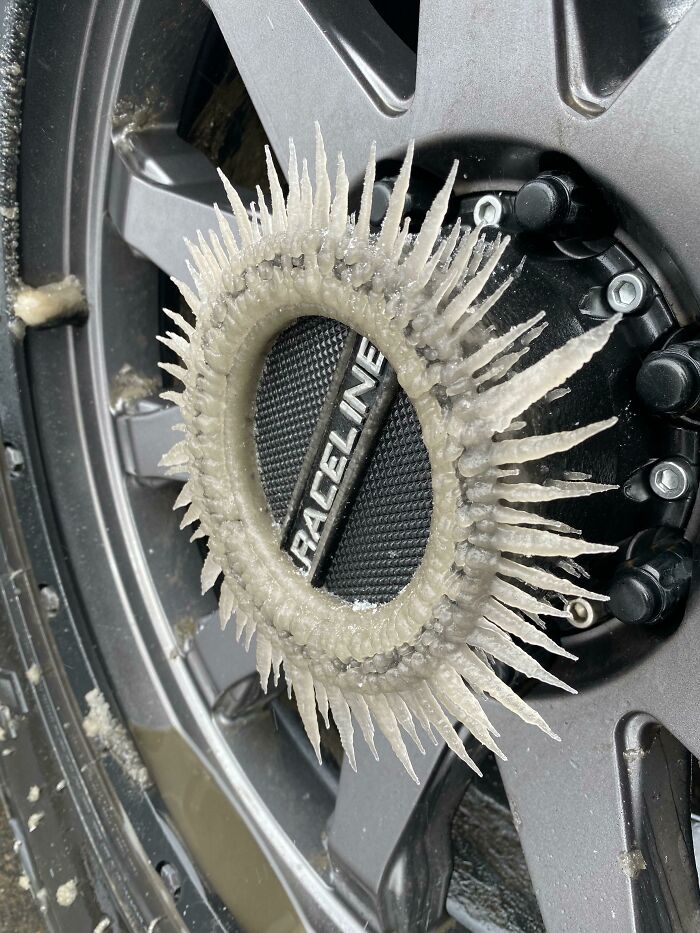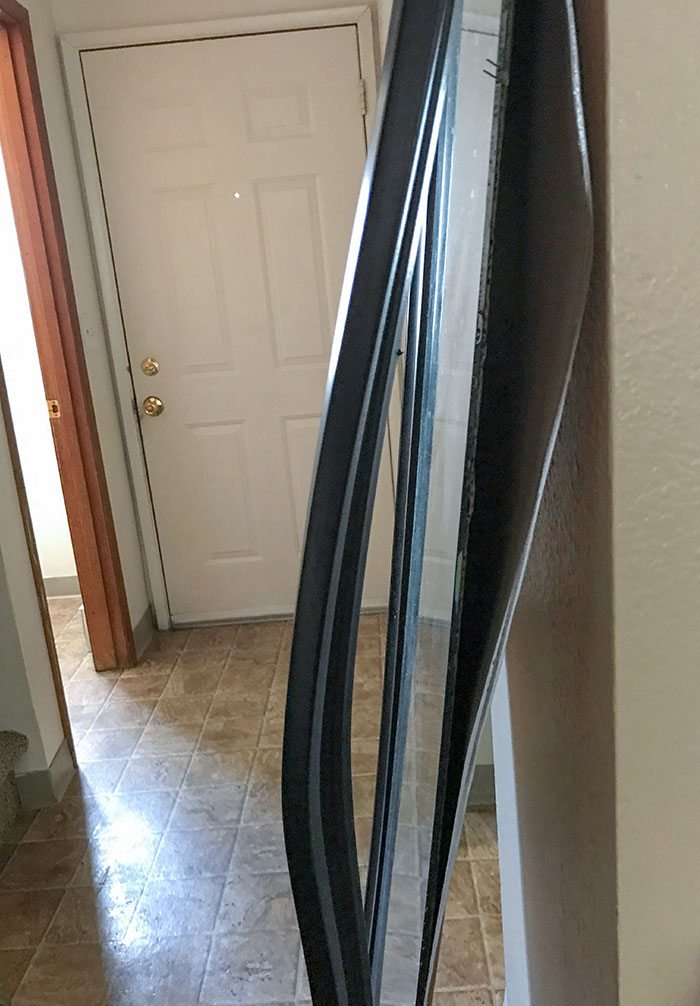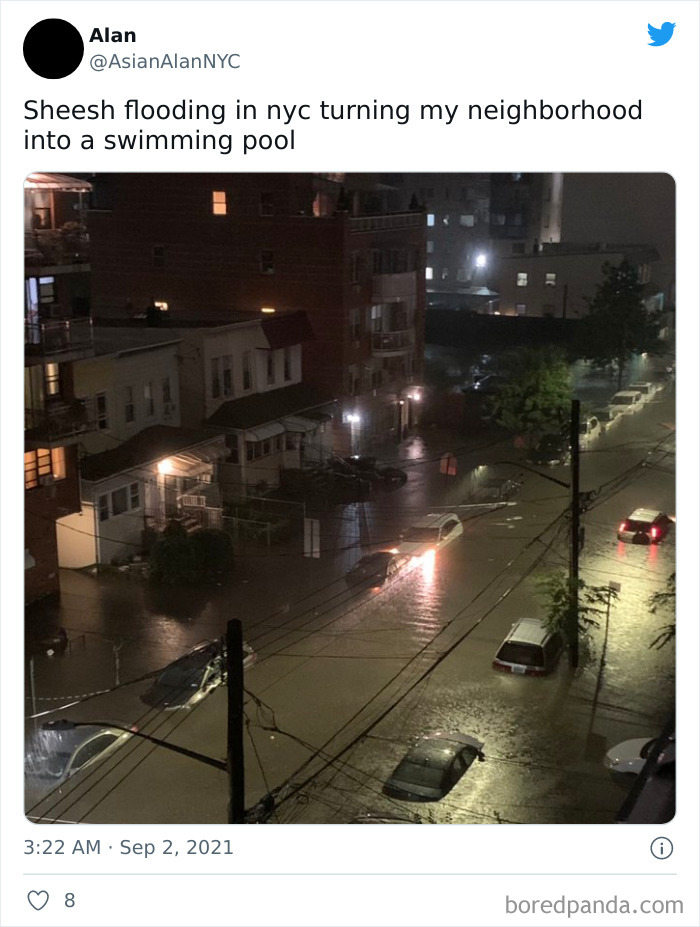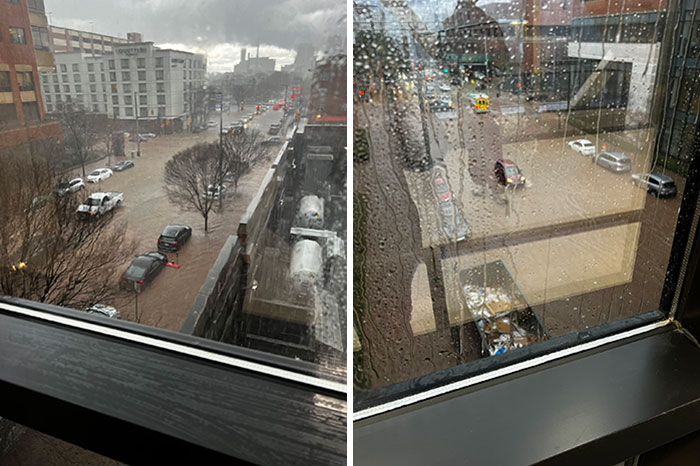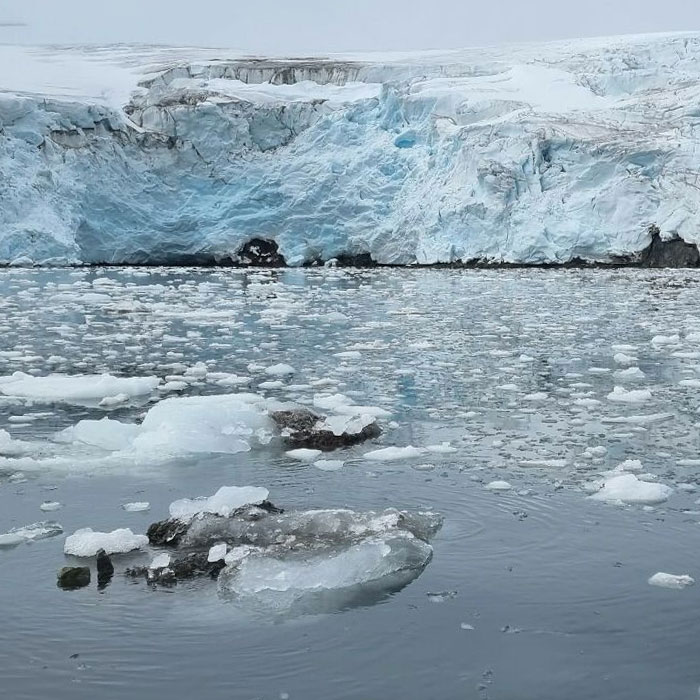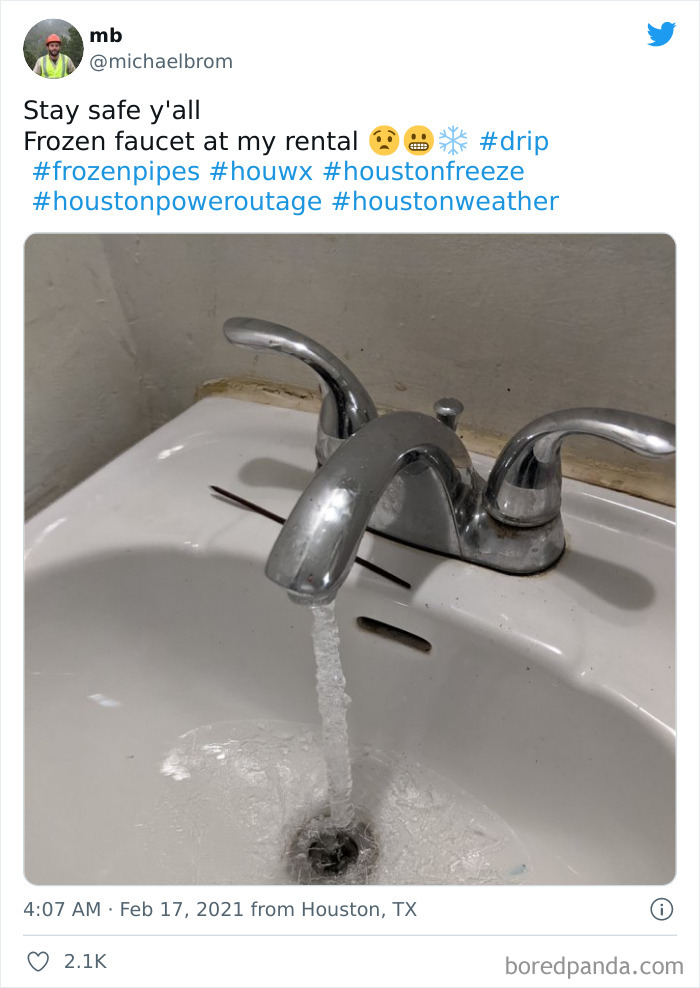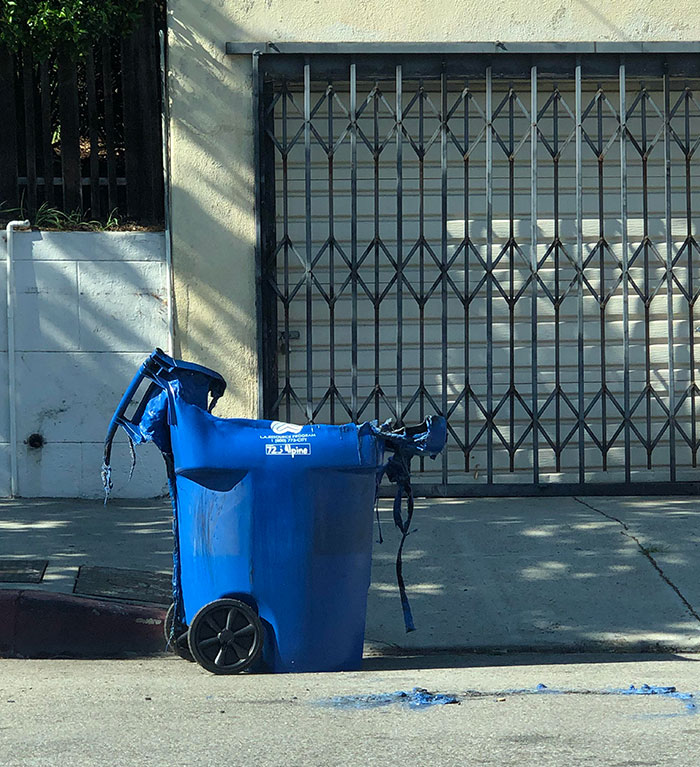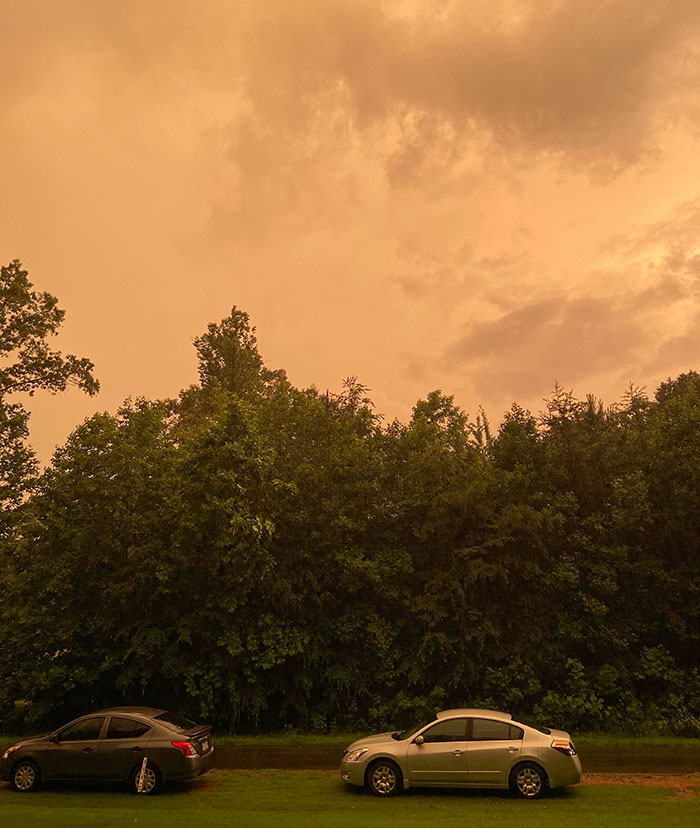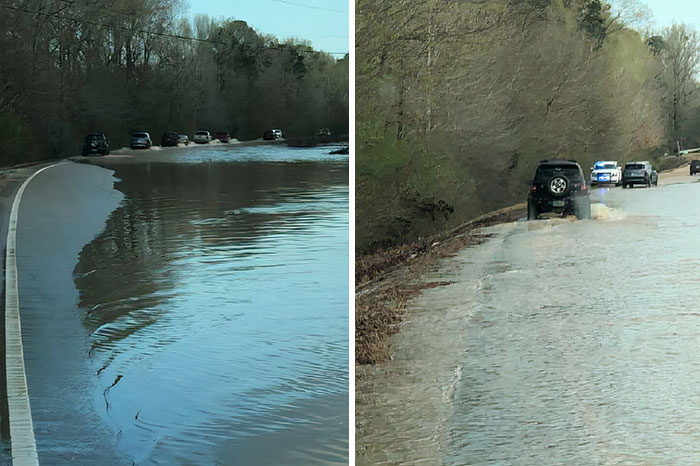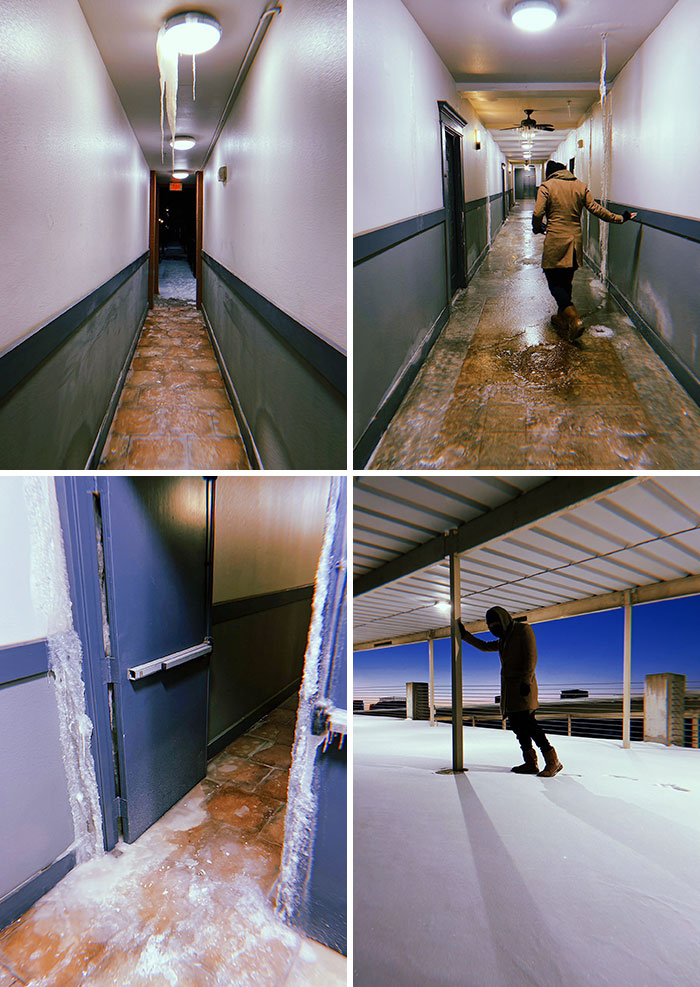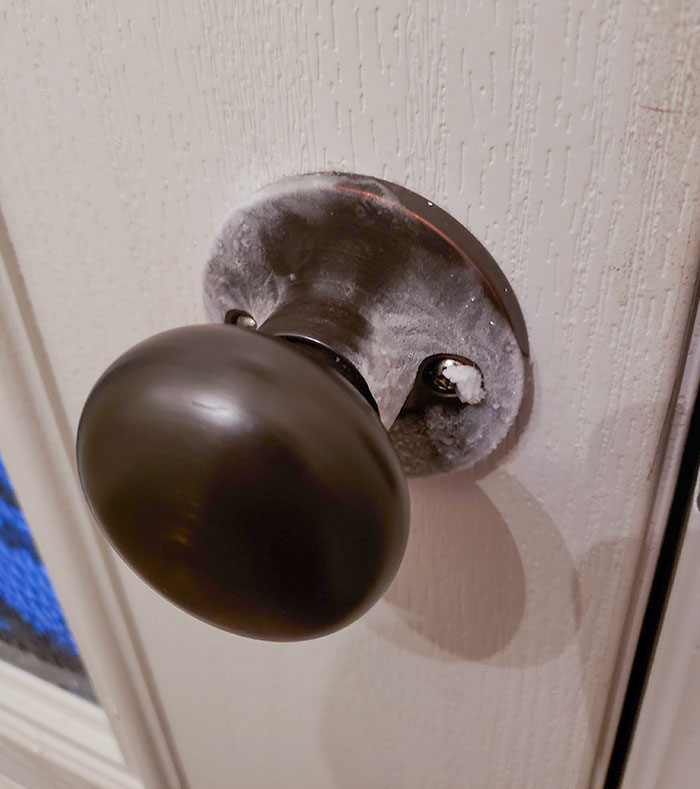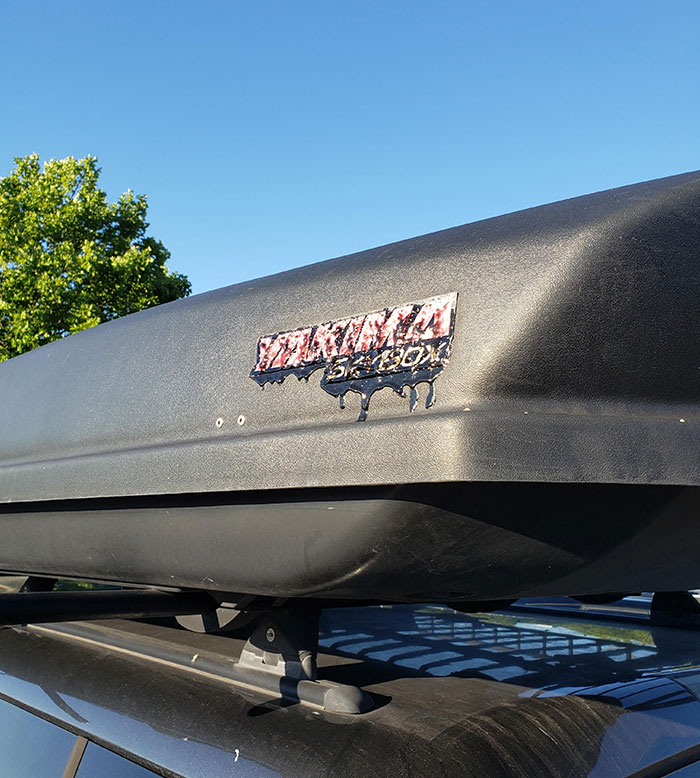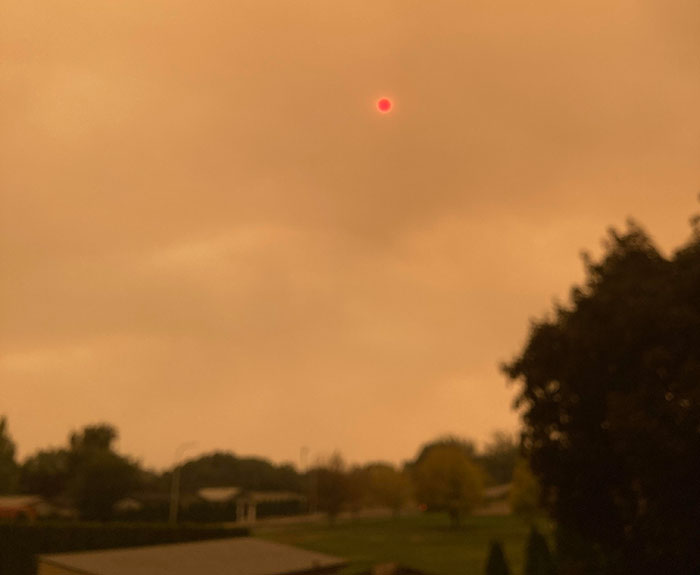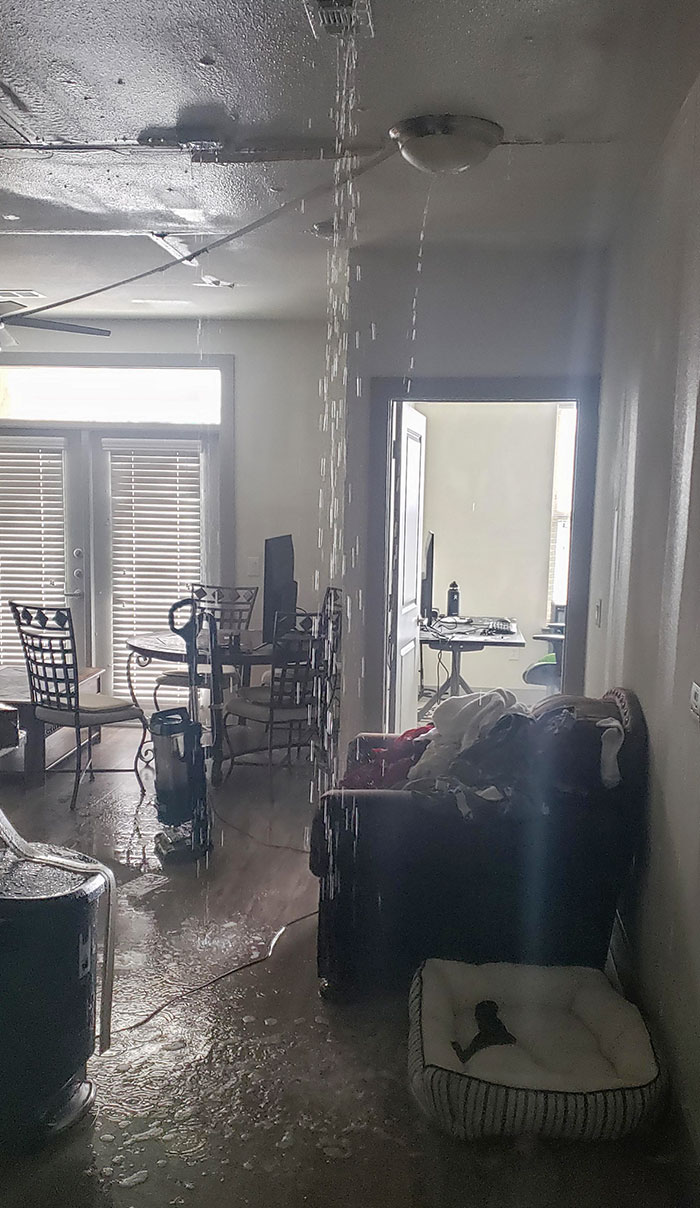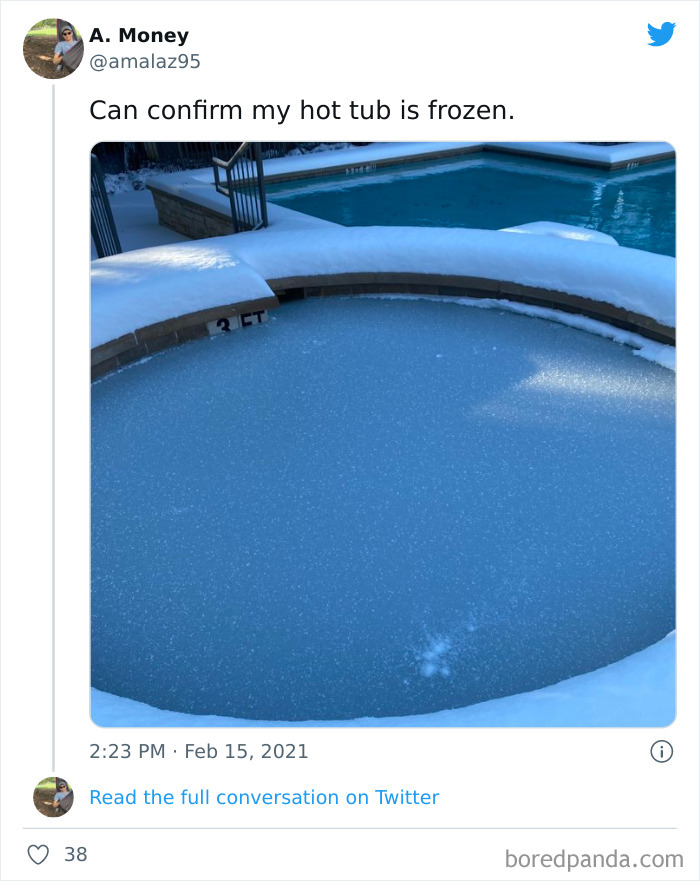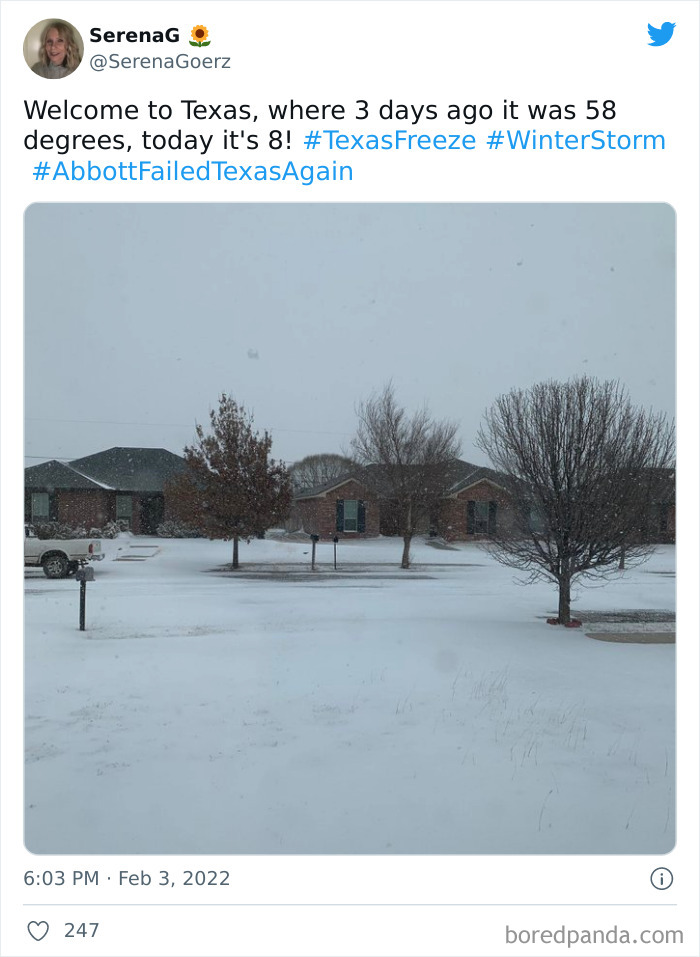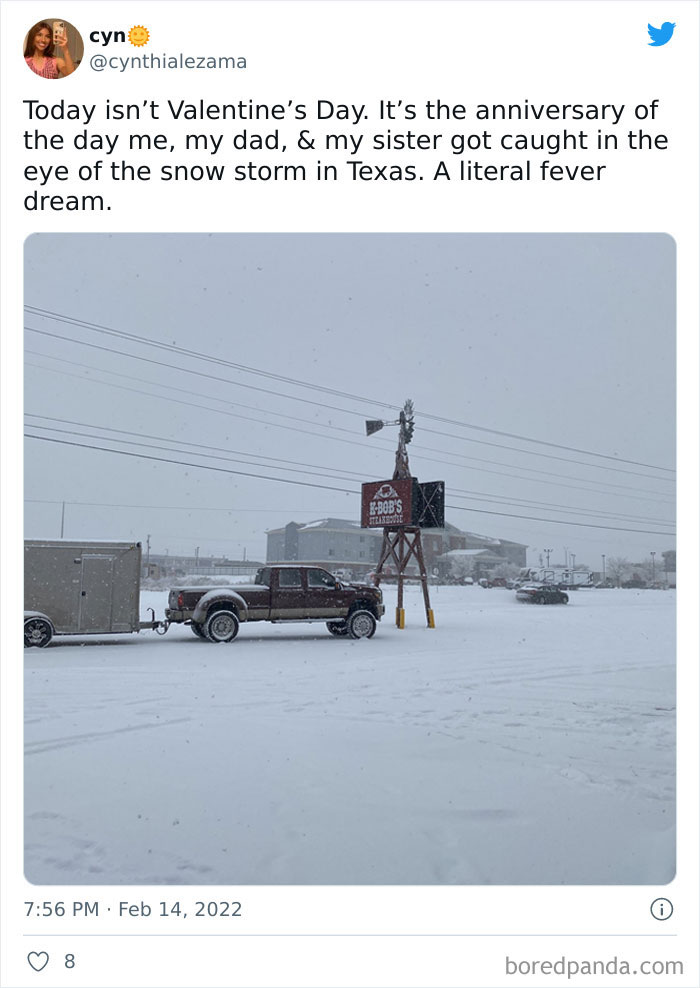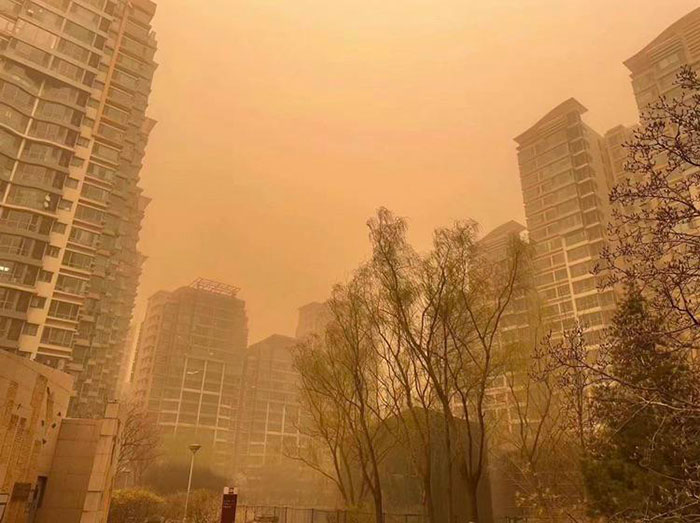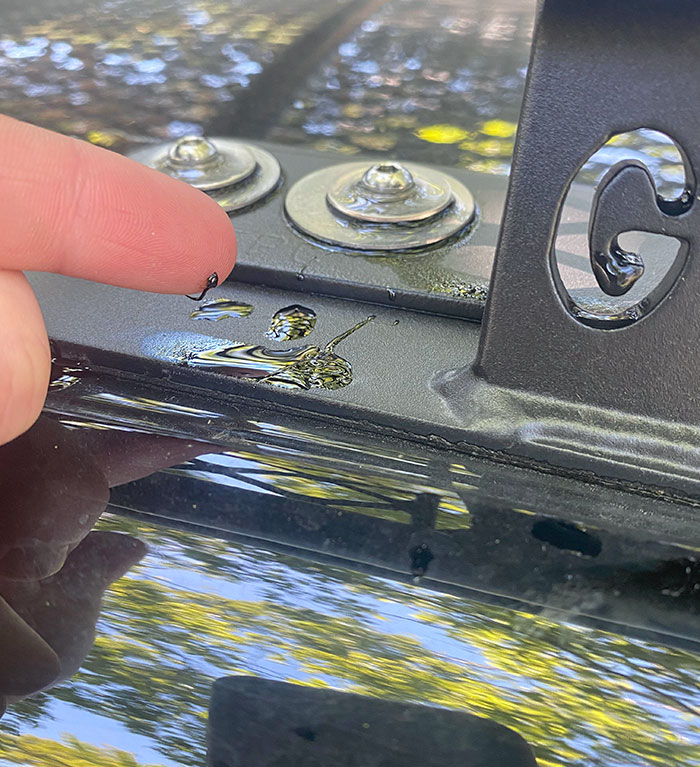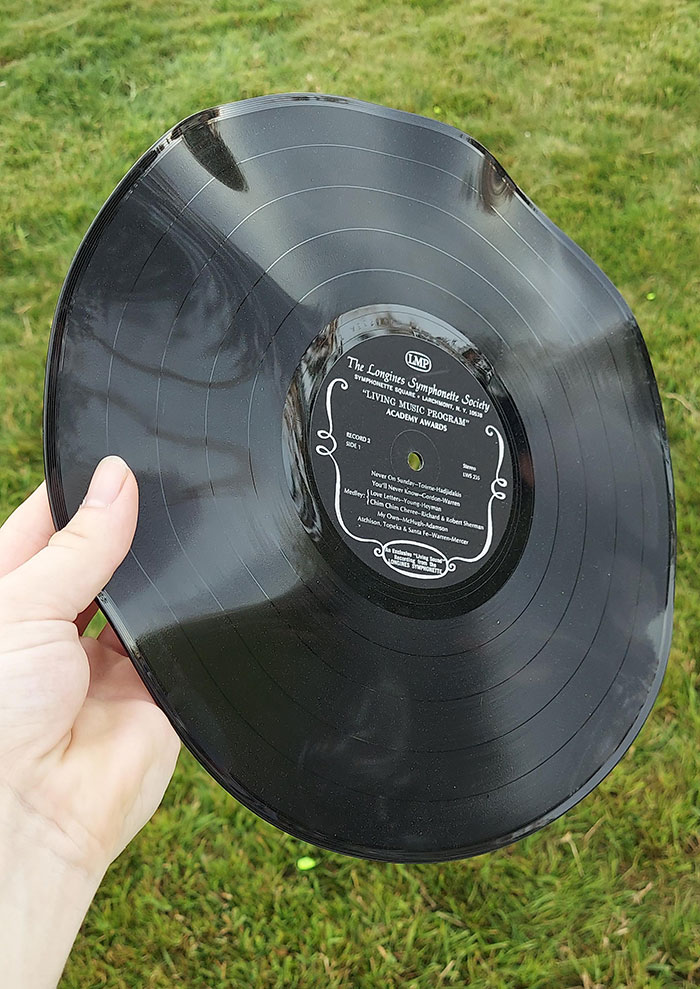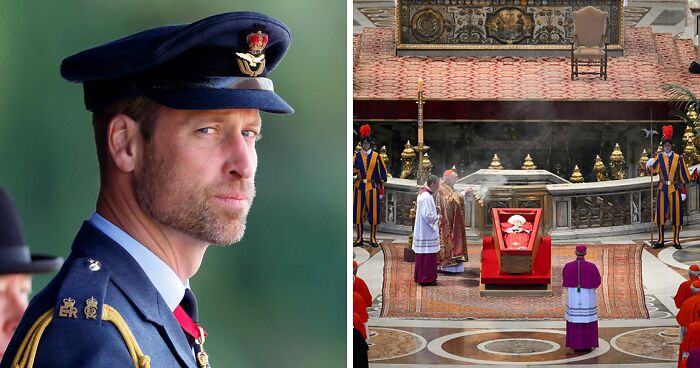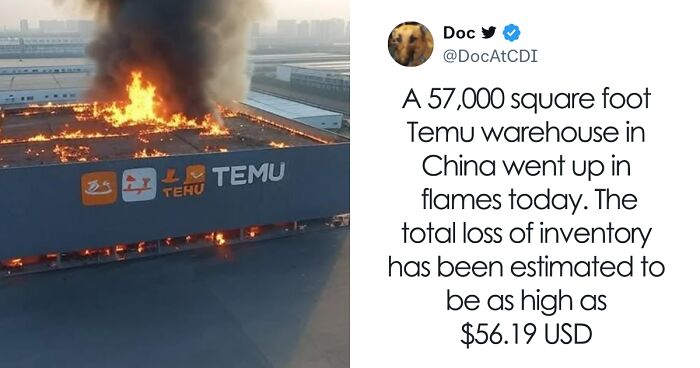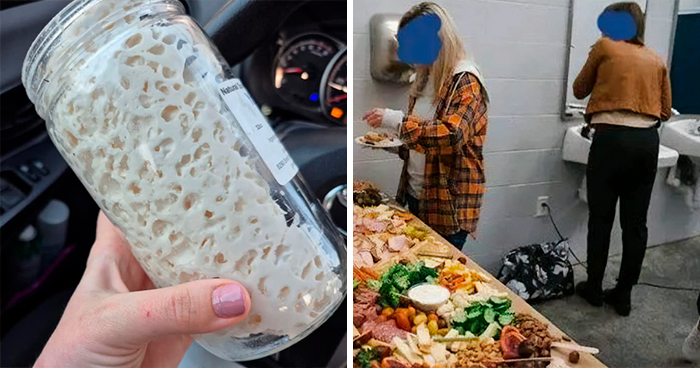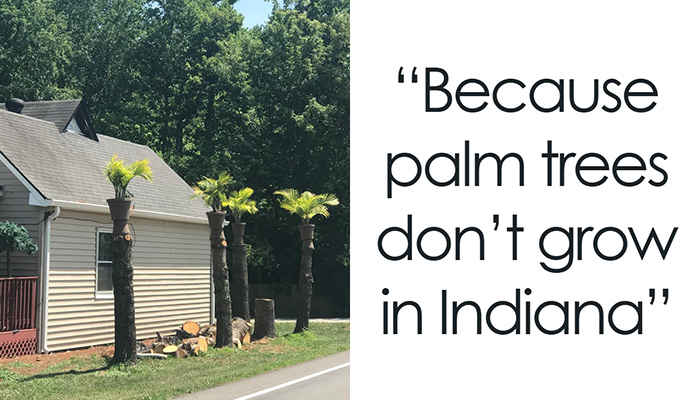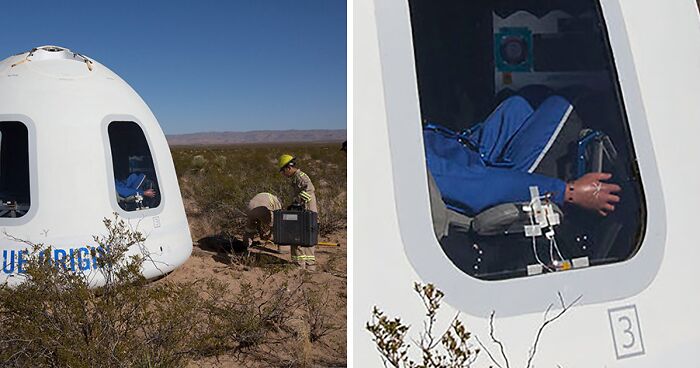With so many apocalyptic events happening recently—from Russia’s unprovoked invasion of Ukraine to the continuing global Covid-19 pandemic—it can be easy to forget that we have another urgent crisis on our hands. The climate crisis.
Climate change, pollution, and environmental degradation haven’t taken a vacation. They’re still baring their claws and some argue that it might already be too late to avoid many of the worst effects.
And the proof is pretty much everywhere. The weather is becoming more unpredictable with droughts, floods, fires, and heatwaves becoming more and more common. Global temperatures and sea levels are rising. And even birds are laying their eggs earlier in some places as spring is coming earlier in the year.
Bored Panda has compiled this list of photos to remind you of the very real impact that climate change has on people’s everyday lives. When you’re done looking through these horrifying photos, we’d like to hear your thoughts on the most effective ways to stop the climate crisis. You can share them in the comments, dear Pandas.
Bored Panda reached out to Joseph Pierre, a professor of psychiatry at the David Geffen School of Medicine at UCLA and the author of the 'Psych Unseen: Brain, Belief, & Behavior' blog at Psychology Today to understand why some people deny that climate change exists. The good news is that there's been a decrease in climate change denial in recent years. However, the biggest challenges remain pushing for political and legislative change, fighting a sense of powerlessness, and overcoming the deceptions that Big Oil operates with. Not to mention that even though some people believe in climate change, they don't think that it's 'anthropogenic', i.e. caused by human beings. Which, very obviously, it is.
"We’ve actually seen a significant decrease in climate change denial across the world over the past decade. One reason is that we’ve all been witnessing global warming and its effects firsthand with the hottest temperatures ever recorded in recent years. Another reason is that climate change scientists, governments, and various advocacy groups have also been a lot more vocal about the consensus on this issue, pushing back against the disinformation campaigns of conservative groups and Big Oil," Dr. Pierre explained to us why fewer people are deniers now.
This post may include affiliate links.
Capital Of The Philippines Before And After The Quarantine
"To me, the biggest challenge isn’t converting those who continue to deny anthropogenic climate change—it’s how to best translate growing acceptance of anthropogenic climate change into political and legislative action. I think that there are a lot of people who now believe that anthropogenic climate change is real, but feel powerless to do anything about it," Dr. Pierre said.
We all have a part to play in saving Planet Earth. However, action on an individual scale is minuscule and needs to be supplemented by multinational corporations radically changing their business models.
"While we can all do some small part as consumers, the reality is that real change has to come from the fossil fuel industry acting against its immediate self-interests in order to steer us away from future disaster," the UCLA professor told Bored Panda. Dr. Pierre believes that companies that contribute to the climate crisis the most are very likely aware of what they're doing but haven't admitted to it yet.
"Like the tobacco industry, there’s good evidence that Big Oil believes that anthropogenic climate change is a reality, but refuses to acknowledge it publicly. That’s not true denial, it’s deception. Which means that change won’t happen unless there’s legislative action on a global scale. If we don’t demand that as citizens and voters, it won’t happen."
Oregon Wildfires Making It Look Straight Apocalyptic
This happened in Australia some time back! Either way, this is really scary.
Lightning Highlighting A Tornado - Fort Worth, TX
According to Dr. Pierre from the David Geffen School of Medicine at UCLA, there are different types of climate change denialism. Some of them have different causes. The professor was kind enough to walk us through it all.
"To start with, research has also shown that attitudes about climate change are related to 'naïve realism' based on our own personal experience of the weather. We tend to be insensitive to data from around the world or what’s going on with glacial melts in favor of what we experience in our own lives."
He explained: "Personally experiencing record-breaking heatwaves and flooding tends to increase belief in climate change, but cold winters can have the opposite effect."
What's more, we're less aware of small changes that happen over long periods of time. Dr. Pierre noted that the comparison to boiling frogs is actually very accurate. "And since we all experience a diurnal variation of at least 20 degrees F’ on any given day, it’s hard to imagine why climate change scientists are saying that a predicted increase of just a few degrees of mean global temperature could spell mass disaster for the planet."
Frozen Flower I Found In Austin During The Texas Winter Storm
Currently Experiencing Major Flooding In Australia, But Nothing Closes The Pub
The Covid-19 Lockdown In Armenia And Sudden Drop In Air Pollution Has LED To Some Stunningly Clear Views Of Mount Ararat
More and more people believe that climate change is real. Unfortunately, there's a hitch. Not everyone believes in the idea that it is 'anthropogenic,' caused by human beings by burning fossil fuels and greenhouse gas emissions. The UCLA professor says that this idea is less widely accepted. And it's all due to a misconception that there's supposed widespread disagreement between scientists on this matter.
"This is partially due to lack of awareness about just how many climate change scientists agree that anthropogenic climate change is a reality and the associated misperception that there’s disagreement on this subject. Reviews of published literature, as well as polls, have consistently shown that consensus among climate change scientists about anthropogenic climate change is 97% or higher," Dr. Pierre noted.
"Although it’s true that some 'scientists' have gone on record refuting anthropogenic climate change, studies have shown that the more expertise on the subject of climate change, the more consensus. In other words, while some who refute climate change might have a science background, most aren’t actually experts—they aren’t climate change scientists who are actively working and publishing research in the field. Note also that the idea that anthropogenic climate change isn’t settled science is a deliberate disinformation strategy that has been funded by the fossil fuel industry going back decades."
This Tree That Got Twisted From Hurricane Laura
We Got A Bit Of A Snowstorm This Weekend In Saskatchewan
One Day Difference In Fort Collins Colorado
This is normal for March and April in the Shenandoah Valley, VA.
What's more, climate change denial can be attributed to partisan motivated reasoning, according to Dr. Pierre. He stressed to Bored Panda that in the United States, it's political orientation that is one of the strongest predictors of climate change denial. So, for example, conservatives and Republicans tend to be more likely to deny anthropogenic climate change than liberals and Democrats.
"That divide is much wider in the US than it is in many other countries and climate change denial is tellingly more common in countries that are major oil producers like the US and Saudi Arabia," the professor noted.
Street Picture Of A German Village After The Recent Flooding
India's Worst Locust Attack In 27 Years In Rajasthan In May 2020
My Brother In Law Just Took This From Their Balcony In Sydney. Wild As Wild Can Be
"Rather than this being explained by conservatives being 'anti-science' per se, it suggests that climate change denial is largely about what has been called 'solution aversion'—an unwillingness to curb fossil fuel production because it will hurt one’s wallet—whether we’re talking about a blue-collar working the coal industry, a politician with significant campaign donations from Big Oil, or Big Oil itself," he suggested that economic interests make up a significant part of this denial.
"On an unconscious level, this can also be explained by cognitive dissonance—when faced with the psychological discomfort that arises by acknowledging that we are the cause of worldwide calamity, motivated denial of anthropogenic climate change can make that discomfort go away."
A Wildfire Ripped Through Waterton Lakes National Park In 2017. Found This Burn Pattern On A Tree There Last Month
It’s a very interesting pattern to b fair. I wonder why it burned that way?
A Wind Turbine Was Destroyed In Texas After Being Hit By A Tornado 14 June 2021 Causing A Fire After A Blade Broke Apart And Hit A Transformer
The Lack Of Rain In Portugal Is Concerning Both Society And National Authorities. Here's An Example: Alge's River Mouth - April 2021 vs. January 2022
To be fair, one photo was taken in Spring and the other one in winter
Apathy, cynicism, greed, straight-out denial, and distrust in science are some of the biggest obstacles that prevent Planet Earth from tackling the climate crisis with its full focus and might.
And now, more than ever, is the moment when we have to come together and fight climate change on all possible fronts, at all costs. The Intergovernmental Panel on Climate Change warned that the situation is very bleak: the crisis is accelerating so rapidly, there’s only a narrow window left to avoid the worst of the worst.
According to The Guardian, some of the things that each and every single one of us can do to help the planet include eating a largely plant-based diet with healthy portions and no waste, as well as greatly reducing the amount of new clothing we buy each year.
Something else to focus on is using electrical products for as long as possible without upgrading. Tom Bailey, the founder of The Jump campaign, also urges people to limit their flights, get rid of cars if possible, and insulate their homes better.
A Storm Literally Picked Up And Moved This Road
The Storm North Of Denver This Afternoon
Today In: "The Climate Crisis Is Not An Infrastructure Issue"
this happened on a major highway in Toronto during a summer heat wave on year. They have added more expansion joints on it now.
The Insider points out that it’s far too late to avoid many of the weather changes already afflicting our planet, including what’s to come. What we’re talking about now is mitigating the damage and the fallout. There are plenty of things that individuals, companies, and nations can do to help protect the environment and humanity.
For example, one thing that nations can do is upgrade, improve, and adapt their power grids so that they can avoid power outages, as the climate becomes more and more unpredictable. This might mean running power lines underground in areas that are susceptible to fires or elevating them in places that are in danger of getting flooded.
This can also be the moment when nature becomes more closely integrated with dense urban areas. Urban forests could help cool cities down by merging grey infrastructure with everything that’s green and natural.
This Just In: Newfoundland Changes Name To “Newlostland” Following Winter Apocalypse
That's good way to keep beer cold! Trust me, i experienced Estonian winters
After Smashing National Temperature Records For 3 Successive Days, Wildfire Spreads Through Lytton On The 4th Day And Destroys 90% Of The Town Within Hours
In The North Okanagan, BC The Smoke From Wildfires Has Gotten So Bad It Has Blocked The Sun Leaving The Sky Blood Red
What’s more, there’s no doubt that the global food industry will have to continue to adapt. Hardier crops that can survive long periods of drought and torrential rainfall will have to be bred. Meanwhile, livestock will have to be given better living conditions to protect them from the elements. However, millions of people will still face food and water shortages, as they do now.
According to the recent IPCC report, there isn’t an inhabited region on our planet that won’t be affected by rising temperatures and increasingly severe weather. Meanwhile, roughly half of the global population (from 3.3 to 3.6 billion people) currently live in areas that are classified as being “highly vulnerable” to climate change.
Water Levels At Lake Powell Are So Low You Can Find Old Wrecks Out Of The Water
My Local Playground Flooded And There's A Swan In It
The Way These Candles Melted In The Heat Today
The report also warns that we’re already seeing massive die-offs of species, from trees to corals. As the global temperature continues to rise, some ecosystems are also turning from life-saving carbon sinks into carbon sources because they’re losing their ability to absorb carbon dioxide.
My AC Exploded On A Recording Breaking Heat Wave In Oregon
Here's How Hot It Is In Portland Right Now, This Is My Neighbor's House And The Vinyl Siding Is Blistering Off His House Under The Sun In The 108 Degree Heat
Just so everyone knows, this happened not because the siding is made of vinyl, but because that vinyl siding has been painted over. You CAN paint vinyl siding, but it is important to paint it a lighter color than it was originally as darker colors absorb more heat from sunlight and cause the product to expand more than its installation will allow for.
Pics I Took From The Tornado Destruction In Mayfield Kentucky
At this rate, entire families might have to consider the hard truth that they might want to consider relocating to less risky areas, with better access to resources, fewer dangerous weather events, and away from the rising sea levels. However, in the meantime, each and every single one of us has a responsibility on our part to help mitigate the disaster that is the climate crisis. There’s no plan B, nor is there a planet B. It’s a matter of integrity, morals, and survival.
9 AM At The Oregon Coast Due To Wildfires 100s Of Miles Away
The Worst Floods In 60 Years In South Sudan. Catastrophic Floods Have Forced Nearly 750k People Out Of Their Homes
Floods in Fangak, Jonglei state, South Sudan.
Athens, Greece - Just Two Days Apart, After A Big Snowstorm It's Now Up To 21°C/69 °F
A Storm Knocked Over A Tree Whose Roots Lifted The Car Parked Next To It
For The First Time In Almost 30 Years Could Clearly See The Himalayas Due To India’s Lockdown Clearing Air Pollution
This was the view from our rooftop at home in Punjab, India.
I Took A Picture Of The Hoover Dam, Nevada/Arizona
The water reservoir of Hoover Dam was at it's all-time lowest during the 2021 draught.
Morocco Is Experiencing The Worst Drought In Decades
Catastrophic Flood In Henan, China, Over 300 People Passed Away
NYC Snowstorm
The Irony Of “Global Warming Doesn’t Exist” With The Current Background
Local Roads And Sidewalks Are Full Of Snow
Walking on a snowed highway doesn't seem the most intelligent thing to do.
This Hailstorm In Herefordshire, England. By The Way Storms This Size Is Uncommon Here
Unseasonal Warm And Dry Weather Expected This Week, Has Led To An Amber Wildfire Alert Being Issued For The Dorset & Wiltshire Fire And Rescue Service Area
Sadly, there are quite a few of them posting in this thread.
Load More Replies...Nothing to see here! - said the politician and the factory owner from their climatised hilltop apartment.
Sadly, there are quite a few of them posting in this thread.
Load More Replies...Nothing to see here! - said the politician and the factory owner from their climatised hilltop apartment.

 Dark Mode
Dark Mode 

 No fees, cancel anytime
No fees, cancel anytime 






